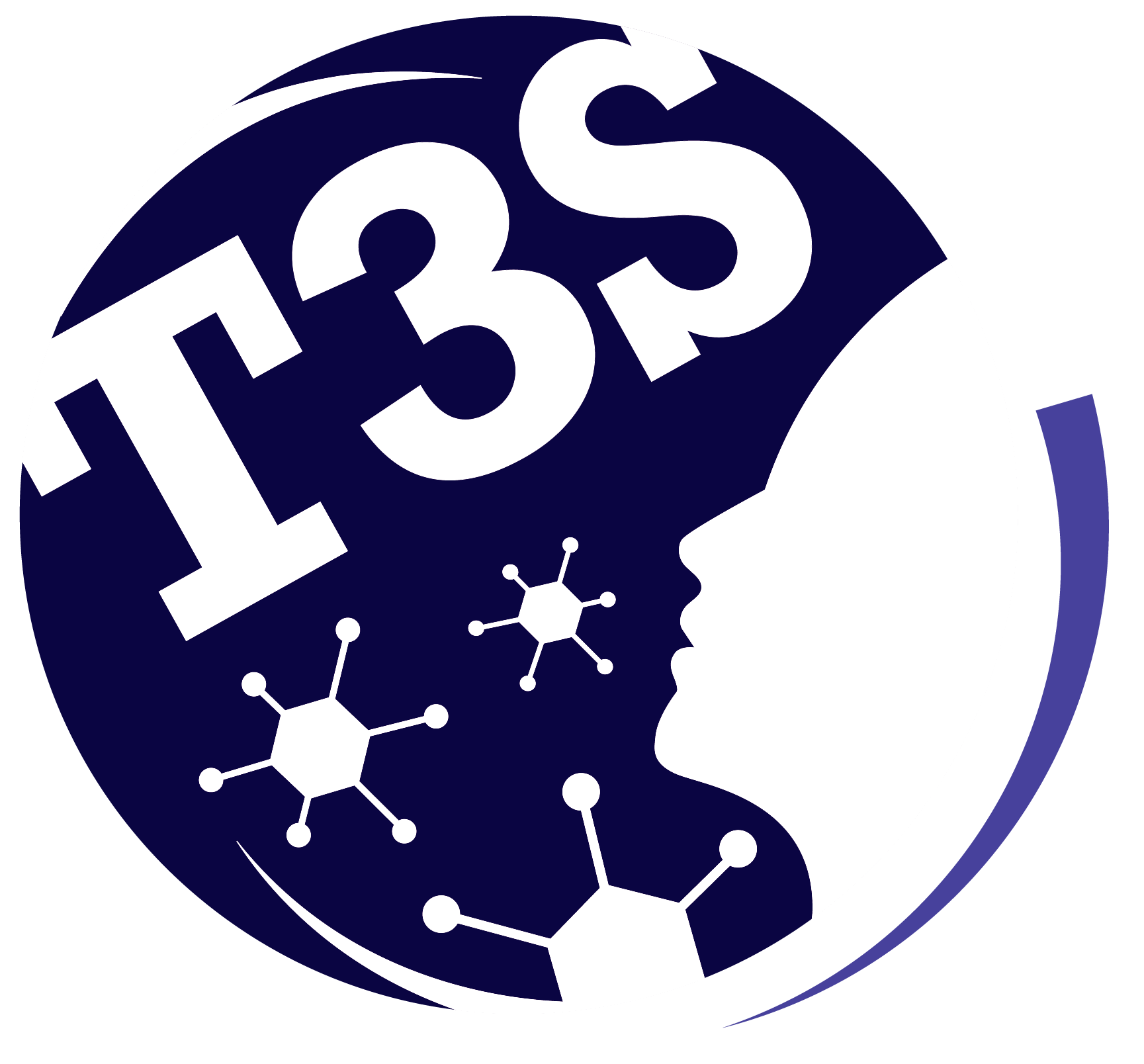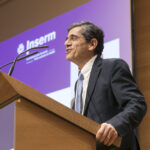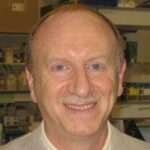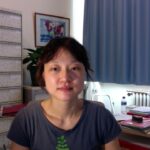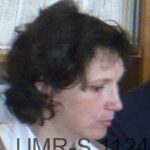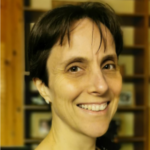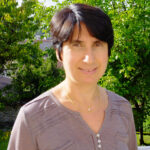Team 1 – Signaling in environmental and drug toxicology
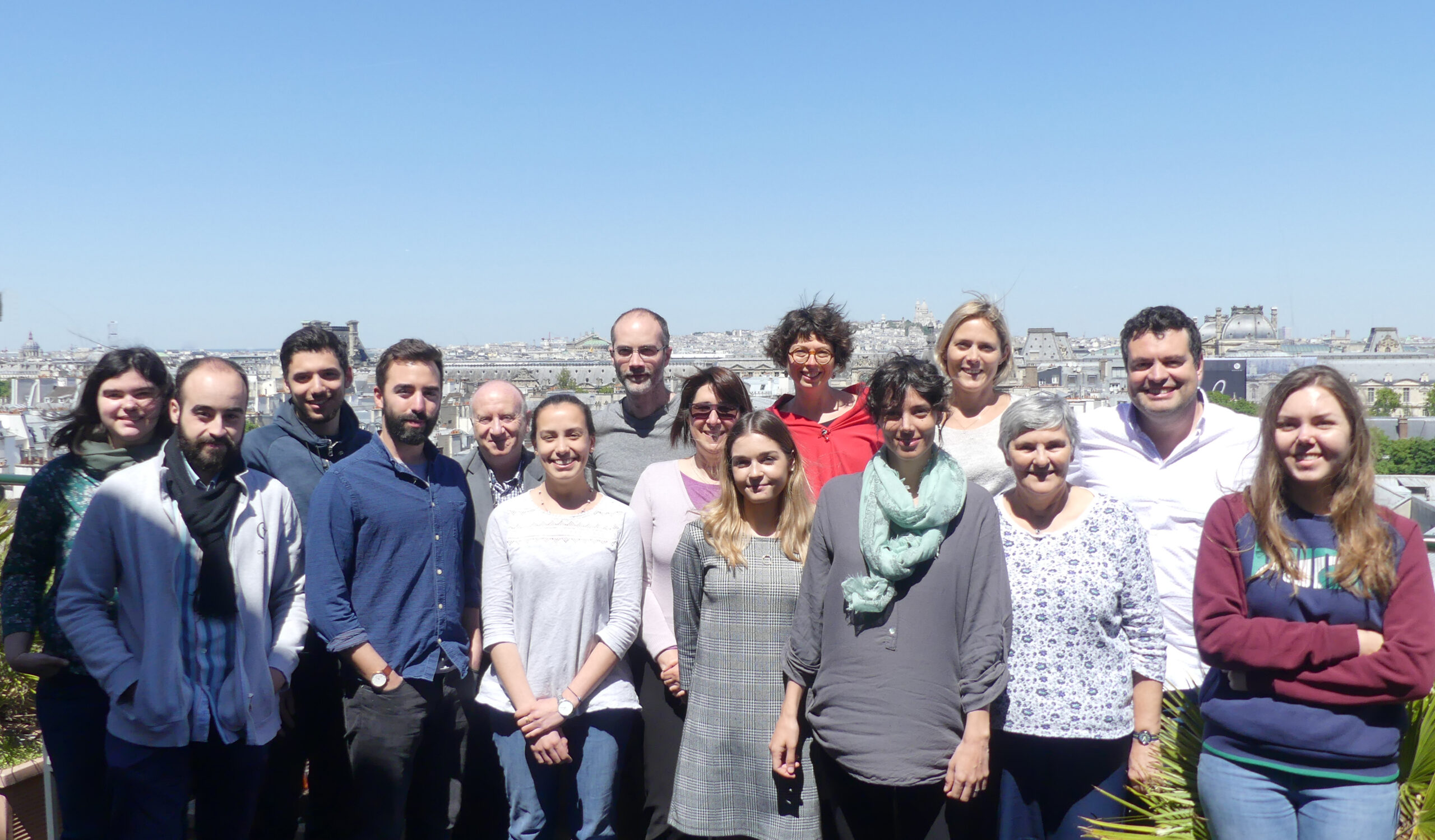
© all rights reserved
The Team 1 Signaling in environmental and drug toxicology is composed by three groups with their own specificities.
Meet Our Specialised Teams
Experimental Toxicology
System Toxicology
Genomic Epidemiology of Multifactorial DiseaseS
METATOX (Experimental toxicology)
Our team identifies the mechanisms of action activated by a variety of environmental pollutants, alone or in combination, to understand their influence on the incidence of various pathologies (cancer, liver diseases, neurodegenerative diseases) in order to identify biomarkers. We use and develop cellular, animal and computational models over several main lines of research:
1) Contextual studies to study the sensitizing effects of persistent organic pollutants such as Seveso dioxin on the development of liver fibrosis or demyelination in the central nervous system. We use rodent models and more recently the nematode C. elegans.
2) We are also developing innovative cell models to study, for example, the influence of adipocytes on tumor metabolic phenotype or the effect of inflammatory cells on hepatocyte function.
3) We leverage our data produced in vivo and in vitro to develop computational models of system toxicology. We develop network biology and predictive toxicology models by integrating these data (into European or national projects) providing potential links between the exposure to environmental chemicals and adverse health outcomes.
Keywords: persistent organic pollutants; AhR; metabolic disruption; cancer; chronic liver diseases; computational models
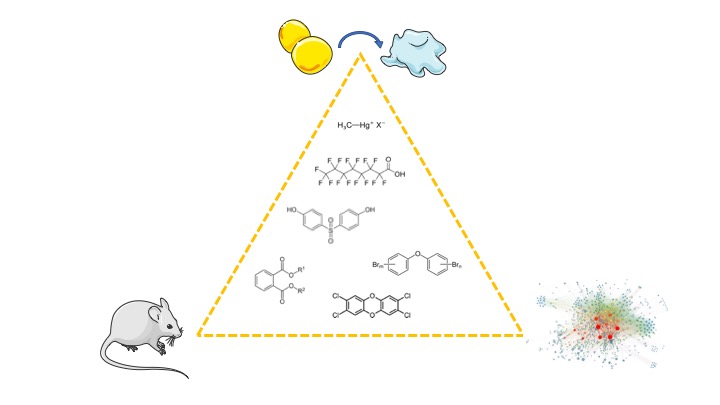
Team & group leader
- Xavier Coumoul, University Professor, Europe department, MetaToxxavier.coumoul@-Code to remove to avoid SPAM-u-paris.fr, +33 1 76 53 43 56, room P433
Group members
- Lawrence Aggerbeck, CNRS researcher, DR- CNRS, MetaToxlawrence.aggerbeck@-Code to remove to avoid SPAM-u-paris.fr, +33 1 42 86 20 73, room P435
- Martine Aggerbeck, CNRS researcher, CR-CNRS, MetaToxmartine.aggerbeck@-Code to remove to avoid SPAM-u-paris.fr, +33 1 76 53 43 55, room P431
- Sana Al Awabdh, lecturer, MetaToxsana.al-awabdh@-Code to remove to avoid SPAM-u-paris.fr, +33 1 42 86 4376
- Karine Andréau, lecturer, MetaToxkarine.andreau@-Code to remove to avoid SPAM-u-paris.fr, +33 1 76 53 43 62, room P434
- Robert Barouki, Laboratory Director, MetaToxrobert.barouki@-Code to remove to avoid SPAM-u-paris.fr, +33 1 76 53 43 70, room P460
- Chantal Benelli, INSERM researcher, CR- INSERM, MetaToxchantal.benelli@-Code to remove to avoid SPAM-u-paris.fr, +33 1 42 86 38 65, room P461
- Etienne Blanc, Associate professor, MCU Paris Descartes, Europe department, MetaToxetienne.blanc@-Code to remove to avoid SPAM-u-paris.fr, +33 1 76 53 43 57, room P434
- Sylvie Bortoli, University researcher, IR, Europe department, MetaToxsylvie.bortoli@-Code to remove to avoid SPAM-u-paris.fr, +33 1 76 53 43 75, room P461
- Caroline Chauvet, Associate Professor, MetaToxcaroline.chauvet@-Code to remove to avoid SPAM-u-paris.fr, +33 1 76 53 43 76, room P433
- Claude Forest, INSERM researcher, DR- INSERM, MetaToxclaude.forest@-Code to remove to avoid SPAM-u-paris.fr, +33 1 42 86 22 21, room R286
- Min-Ji Kim, Assistant Professor, MetaTox, Systoxmin-ji.kim@-Code to remove to avoid SPAM-inserm.fr, +33 1 76 53 43 77, room P434
- Marie-Aude Le Frere-Belda, University Professor, MetaToxmarie-aude.le-frere-belda@-Code to remove to avoid SPAM-aphp.fr
- Béatrice Le Grand, Paris Descartes Technician, MetaToxbeatrice.le-grand@-Code to remove to avoid SPAM-u-paris.fr, +33 1 76 53 43 57, room P434
- Fabrice Lecuru, University Professor, MetaToxfabrice.lecuru@-Code to remove to avoid SPAM-egp.aphp.fr
- Philippe Noirez, Associate professor, MCU Paris Descartes, MetaToxphilippe.noirez@-Code to remove to avoid SPAM-u-paris.fr
- Céline Tomkiewicz-Raulet, INSERM Engineer, MetaToxCeline.Tomkiewicz-raulet@-Code to remove to avoid SPAM-u-paris.fr, +33 1 76 53 43 55, room P431
SYSTOX (System Toxicology)
Group leader
- Karine Audouze, Professor, Europe department, MetaTox, Systoxkarine.audouze@-Code to remove to avoid SPAM-u-paris.fr, +33 1 42 86 40 10
Group members

 Antoine Girardon, INSERM Engineer, MetaTox, Systoxantoine.girardon@-Code to remove to avoid SPAM-inserm.fr
Antoine Girardon, INSERM Engineer, MetaTox, Systoxantoine.girardon@-Code to remove to avoid SPAM-inserm.fr
 Thomas Jaylet, PhD Student, MetaTox, Systoxthomas.jaylet@-Code to remove to avoid SPAM-etu.u-paris.fr
Thomas Jaylet, PhD Student, MetaTox, Systoxthomas.jaylet@-Code to remove to avoid SPAM-etu.u-paris.fr
- Min-Ji Kim, Assistant Professor, MetaTox, Systoxmin-ji.kim@-Code to remove to avoid SPAM-inserm.fr, +33 1 76 53 43 77, room P434

- Patricia Margaritte-Jeannin, INSERM Engineer, MetaTox, Systoxpatricia.jeannin@-Code to remove to avoid SPAM-inserm.fr
GEMS (Genomic Epidemiology of Multifactorial DiseaseS)
The GEMS group develops statistical methods and strategies in genomic epidemiology to identify genes and gene-exposome interactions involved in multifactorial diseases (asthma, allergic diseases, melanoma). This research program integrates multi-omics data (genomics, epigenomics, transcriptomics, metabolomics) together with biological knowledge, through pathway and network analyses, to provide further insight into the molecular mechanisms involved in the disease process.
Keywwords: Genome-wide association studies, gene-environment interactions, statistical genetics, software development, integration of omics, asthma, allergic diseases, melanoma
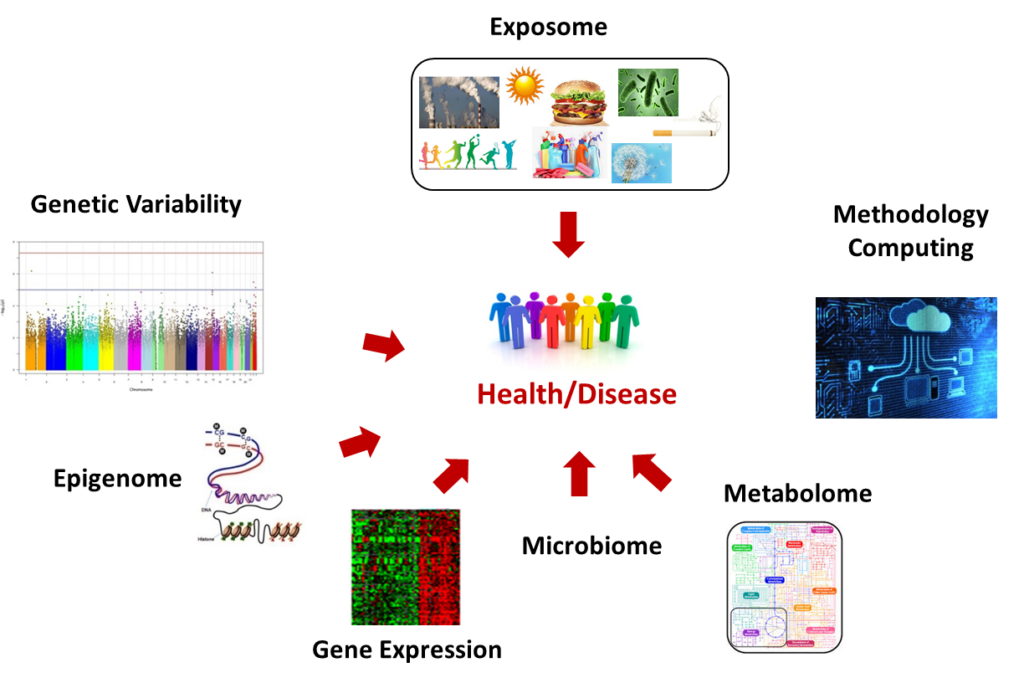
Group leader
- Florence Demenais, INSERM researcher, DR- INSERM, MetaToxflorence.demenais@-Code to remove to avoid SPAM-inserm.fr
Group members
- Emmanuelle Bouzigon, INSERM researcher, CR- INSERM, MetaToxemmanuelle.bouzigon@-Code to remove to avoid SPAM-inserm.fr
- Marie-Hélène Dizier, INSERM researcher, CR- INSERM, MetaToxmarie-helene.dizier@-Code to remove to avoid SPAM-inserm.fr
Job offers
- Assistant Ingénieur/Ingénieur d’Etudes, Immunotoxicité In-vitro/In-vivo. Poste d’une durée 2 ans à pourvoir immédiatement (avril-mai 2023) : profil
Main publications
See all publications
- Reduced Birth Weight and Exposure to Per- and Polyfluoroalkyl Substances: A Review of Possible Underlying Mechanisms Using the AOP-HelpFinder.Gundacker C, Audouze K, Widhalm R, Granitzer S, Forsthuber M, Jornod F, Wielsøe M, Long M, Halldórsson TI, Uhl M, Bonefeld-Jørgensen EC Toxics
- Putative Biomarkers of Environmental Enteric Disease Fail to Correlate in a Cross-Sectional Study in Two Study Sites in Sub-Saharan Africa.Vonaesch P, Winkel M, Kapel N, Nestoret A, Barbot-Trystram L, Pontoizeau C, Barouki R, Rakotondrainipiana M, Kandou K, Andriamanantena Z, Andrianonimiadana L, Habib A, Rodriguez-Pozo A, Hasan M, Vigan-Womas I, Collard JM, Gody JC, Djorie S, Sansonetti PJ, Randremanana RV, On Behalf Of The Afribiota Investigators Nutrients
- Characterization of Potential Adverse Outcome Pathways Related to Metabolic Outcomes and Exposure to Per- and Polyfluoroalkyl Substances Using Artificial Intelligence.Kaiser AM, Zare Jeddi M, Uhl M, Jornod F, Fernandez MF, Audouze K Toxics
- Corrigendum to “Obesity III: Obesogen assays: Limitations, strengths, and new directions” [Biochem. Pharmacol. 199 (2022) 115014].Kassotis CD, Vom Saal FS, Babin PJ, Lagadic-Gossmann D, Le Mentec H, Blumberg B, Mohajer N, Legrand A, Munic Kos V, Martin-Chouly C, Podechard N, Langouët S, Touma C, Barouki R, Kim MJ, Audouze K, Choudhury M, Shree N, Bansal A, Howard S, Heindel JJ Biochem Pharmacol
- Clinical and Biological Adaptations in Obese Older Adults Following 12-Weeks of High-Intensity Interval Training or Moderate-Intensity Continuous Training.Youssef L, Granet J, Marcangeli V, Dulac M, Hajj-Boutros G, Reynaud O, Buckinx F, Gaudreau P, Morais JA, Mauriège P, Gouspillou G, Noirez P, Aubertin-Leheudre M Healthcare (Basel)
- Factors associated with anaemia among preschool- age children in underprivileged neighbourhoods in Antananarivo, Madagascar.Randrianarisoa MM, Rakotondrainipiana M, Randriamparany R, Andriantsalama PV, Randrianarijaona A, Habib A, Robinson A, Raharimalala L, Hunald FA, Etienne A, Collard JM, Randrianirina F, Barouki R, Pontoizeau C, Nestoret A, Kapel N, Sansonetti P, Vonaesch P, Randremanana RV BMC Public Health
- Study of the Kinetics of the Determinants of Performance During a Mountain Ultramarathon: Multidisciplinary Protocol of the First Trail Scientifique de Clécy 2021.Mauvieux B, Hingrand C, Drigny J, Hodzic A, Baron P, Hurdiel R, Jouffroy R, Vauthier JC, Pessiglione M, Wiehler A, Degache F, Pavailler S, Heyman E, Plard M, Noirez P, Dubois B, Esculier JF, Nguyen AP, Van Cant J, Roy Baillargeon O, Pairot de Fontenay B, Delaunay PL, Besnard S JMIR Res Protoc
- Hexokinase 2 is a transcriptional target and a positive modulator of AHR signalling.Watzky M, Huard S, Juricek L, Dairou J, Chauvet C, Coumoul X, Letessier A, Miotto B Nucleic Acids Res
- Changes in Systemic Regulatory T Cells, Effector T Cells, and Monocyte Populations Associated With Early-Life Stunting.Andriamanantena Z, Randrianarisaona F, Rakotondrainipiana M, Andriantsalama P, Randriamparany R, Randremanana R, Randrianirina F, Novault S, Duffy D, Huetz F, Hasan M, Schoenhals M, Sansonetti PJ, Vonaesch P, Vigan-Womas I, Afribiota Investigators Front Immunol
- Impact of high-intensity interval training with or without l-citrulline on physical performance, skeletal muscle, and adipose tissue in obese older adults.Marcangeli V, Youssef L, Dulac M, Carvalho LP, Hajj-Boutros G, Reynaud O, Guegan B, Buckinx F, Gaudreau P, Morais JA, Mauriège P, Noirez P, Aubertin-Leheudre M, Gouspillou G J Cachexia Sarcopenia Muscle
- Obesity II: Establishing causal links between chemical exposures and obesity.Heindel JJ, Howard S, Agay-Shay K, Arrebola JP, Audouze K, Babin PJ, Barouki R, Bansal A, Blanc E, Cave MC, Chatterjee S, Chevalier N, Choudhury M, Collier D, Connolly L, Coumoul X, Garruti G, Gilbertson M, Hoepner LA, Holloway AC, Howell G, Kassotis CD, Kay MK, Kim MJ, Lagadic-Gossmann D, Langouet S, Legrand A, Li Z, Le Mentec H, Lind L, Monica Lind P, Lustig RH, Martin-Chouly C, Munic Kos V, Podechard N, Roepke TA, Sargis RM, Starling A, Tomlinson CR, Touma C, Vondracek J, Vom Saal F, Blumberg B Biochem Pharmacol
- Obesity III: Obesogen assays: Limitations, strengths, and new directions.Kassotis CD, Vom Saal FS, Babin PJ, Lagadic-Gossmann D, Le Mentec H, Blumberg B, Mohajer N, Legrand A, Munic Kos V, Martin-Chouly C, Podechard N, Langouët S, Touma C, Barouki R, Kim MJ, Audouze K, Choudhury M, Shree N, Bansal A, Howard S, Heindel JJ Biochem Pharmacol
- Obesity I: Overview and molecular and biochemical mechanisms.Lustig RH, Collier D, Kassotis C, Roepke TA, Kim MJ, Blanc E, Barouki R, Bansal A, Cave MC, Chatterjee S, Choudhury M, Gilbertson M, Lagadic-Gossmann D, Howard S, Lind L, Tomlinson CR, Vondracek J, Heindel JJ Biochem Pharmacol
- Analysis of GWAS-nominated loci for lung cancer and COPD revealed a new asthma locus.Madore AM, Bossé Y, Margaritte-Jeannin P, Vucic E, Lam WL, Bouzigon E, Bourbeau J, Laprise C BMC Pulm Med
- Oxidative and glycolytic skeletal muscles deploy protective mechanisms to avoid atrophy under pathophysiological iron overload.Martin D, Nay K, Robin F, Rebillard A, Orfila L, Martin B, Leroyer P, Guggenbuhl P, Dufresne S, Noirez P, Ropert M, Loréal O, Derbré F J Cachexia Sarcopenia Muscle
- Priorities for research on environment, climate and health, a European perspective.Drakvik E, Kogevinas M, Bergman Å, Devouge A, Barouki R, HERA (Health and Environment Research Agenda) Consortium Environ Health
- Merging the exposome into an integrated framework for “omics” sciences.Price EJ, Vitale CM, Miller GW, David A, Barouki R, Audouze K, Walker DI, Antignac JP, Coumoul X, Bessonneau V, Klánová J iScience
- The Exposome and Toxicology: A Win-Win Collaboration.Barouki R, Audouze K, Becker C, Blaha L, Coumoul X, Karakitsios S, Klanova J, Miller GW, Price EJ, Sarigiannis D Toxicol Sci
- Cytochromes P450 of Caenorhabditis elegans: Implication in Biological Functions and Metabolism of Xenobiotics.Larigot L, Mansuy D, Borowski I, Coumoul X, Dairou J Biomolecules
- Recent Advanced in the Treatment of Advanced SCC Tumors.Basset-Seguin N, Maubec E Cancers (Basel)
- COVID-19 and aerobic exercise: possible role of angiotensin converting enzyme 2.Djemai H, Hammad R, Dabayebeh IM, Hammad S, Merzouk A, Coumoul X, Noirez P Arch Public Health
- Branched-Chain Amino Acids and Insulin Resistance, from Protein Supply to Diet-Induced Obesity.De Bandt JP, Coumoul X, Barouki R Nutrients
- Partitioning of Persistent Organic Pollutants between Adipose Tissue and Serum in Human Studies.Moriceau MA, Cano-Sancho G, Kim M, Coumoul X, Emond C, Arrebola JP, Antignac JP, Audouze K, Rousselle C Toxics
- Adverse outcome pathway from activation of the AhR to breast cancer-related death.Benoit L, Jornod F, Zgheib E, Tomkiewicz C, Koual M, Coustillet T, Barouki R, Audouze K, Vinken M, Coumoul X Environ Int
- Combinatorial pathway disruption is a powerful approach to delineate metabolic impacts of endocrine disruptors.Bernal K, Touma C, Erradhouani C, Boronat-Belda T, Gaillard L, Al Kassir S, Le Mentec H, Martin-Chouly C, Podechard N, Lagadic-Gossmann D, Langouet S, Brion F, Knoll-Gellida A, Babin PJ, Sovadinova I, Babica P, Andreau K, Barouki R, Vondracek J, Alonso-Magdalena P, Blanc E, Kim MJ, Coumoul X FEBS Lett
- Non-V600E/K BRAF Mutations in Metastatic Melanoma: Molecular Description, Frequency, and Effectiveness of Targeted Therapy in a Large National Cohort.Girod M, Dalle S, Mortier L, Dalac S, Leccia MT, Dutriaux C, Montaudié H, de Quatrebarbes J, Lesimple T, Brunet-Possenti F, Saiag P, Maubec E, Legoupil D, Stoebner PE, Arnault JP, Lefevre W, Lebbe C, Dereure O JCO Precis Oncol
- Effect of Aerobic Exercise at Different Intensities on Intraocular Pressure in Young Males.Alfaqeeh F, Djemai H, Hammad R, Hammad S, Noirez P, Dabayebeh IM J Glaucoma
- Identification of novel genes influencing eosinophil-specific protein levels in asthma families.Vernet R, Matran R, Zerimech F, Madore AM, Lavoie ME, Gagnon PA, Mohamdi H, Margaritte-Jeannin P, Siroux V, Dizier MH, Demenais F, Laprise C, Nadif R, Bouzigon E J Allergy Clin Immunol
- Dietary exposure to acrylamide and breast cancer risk: results from the NutriNet-Santé cohort.Bellicha A, Wendeu-Foyet G, Coumoul X, Koual M, Pierre F, Guéraud F, Zelek L, Debras C, Srour B, Sellem L, Kesse-Guyot E, Julia C, Galan P, Hercberg S, Deschasaux-Tanguy M, Touvier M Am J Clin Nutr
- Risk of irAEs in patients with autoimmune diseases treated by immune checkpoint inhibitors for stage III or IV melanoma: results from a matched case-control study.Plaçais L, Dalle S, Dereure O, Trabelsi S, Dalac S, Legoupil D, Montaudié H, Arnault JP, De Quatrebarbes J, Saiag P, Brunet-Possenti F, Lesimple T, Maubec E, Aubin F, Granel-Brocard F, Grob JJ, Stoebner PE, Allayous C, Oriano B, Dutriaux C, Mortier L, Lebbe C Ann Rheum Dis
- The SH-SY5Y human neuroblastoma cell line, a relevant in vitro cell model for investigating neurotoxicology in human: Focus on organic pollutants.Lopez-Suarez L, Awabdh SA, Coumoul X, Chauvet C Neurotoxicology
- Developing human biomonitoring as a 21st century toolbox within the European exposure science strategy 2020-2030.Zare Jeddi M, Hopf NB, Louro H, Viegas S, Galea KS, Pasanen-Kase R, Santonen T, Mustieles V, Fernandez MF, Verhagen H, Bopp SK, Antignac JP, David A, Mol H, Barouki R, Audouze K, Duca RC, Fantke P, Scheepers P, Ghosh M, Van Nieuwenhuyse A, Lobo Vicente J, Trier X, Rambaud L, Fillol C, Denys S, Conrad A, Kolossa-Gehring M, Paini A, Arnot J, Schulze F, Jones K, Sepai O, Ali I, Brennan L, Benfenati E, Cubadda F, Mantovani A, Bartonova A, Connolly A, Slobodnik J, Bruinen de Bruin Y, van Klaveren J, Palmen N, Dirven H, Husøy T, Thomsen C, Virgolino A, Röösli M, Gant T, von Goetz N, Bessems J Environ Int
- Corrigendum to “Obesity II: Establishing causal links between chemical exposures and obesity” [Biochem. Pharmacol. 199 (2022) 115015].Heindel JJ, Howard S, Agay-Shay K, Arrebola JP, Audouze K, Babin PJ, Barouki R, Bansal A, Blanc E, Cave MC, Chatterjee S, Chevalier N, Choudhury M, Collier D, Connolly L, Coumoul X, Garruti G, Gilbertson M, Hoepner LA, Holloway AC, Howell G, Kassotis CD, Kay MK, Kim MJ, Lagadic-Gossmann D, Langouet S, Legrand A, Li Z, Le Mentec H, Lind L, Lind PM, Lustig RH, Martin-Chouly C, Munic Kos V, Podechard N, Roepke TA, Sargis RM, Starling A, Tomlinson CR, Touma C, Vondracek J, Vom Saal F, Blumberg B Biochem Pharmacol
- The exposome as the science of social-to-biological transitions.Vineis P, Barouki R Environ Int
- Getting out of crises: Environmental, social-ecological and evolutionary research is needed to avoid future risks of pandemics.Destoumieux-Garzón D, Matthies-Wiesler F, Bierne N, Binot A, Boissier J, Devouge A, Garric J, Gruetzmacher K, Grunau C, Guégan JF, Hurtrez-Boussès S, Huss A, Morand S, Palmer C, Sarigiannis D, Vermeulen R, Barouki R Environ Int
- Setting the European environment and health research agenda -under-researched areas and solution-oriented research.Huss A, Peters A, Zhao T, Barouki R, Kogevinas M, Vermeulen R, Matthies-Wiesler F Environ Int
- TCDD aggravates the formation of the atherosclerotic plaque in ApoE KO mice with a sexual dimorphic pattern.Bey L, Coumoul X, Kim MJ Biochimie
- Expanding the liver exposome: Should hepatologists care about air pollution?Colombo M, Barouki R J Hepatol
- Aryl Hydrocarbon Receptor and Its Diverse Ligands and Functions: An Exposome Receptor.Larigot L, Benoit L, Koual M, Tomkiewicz C, Barouki R, Coumoul X Annu Rev Pharmacol Toxicol
- Radiation adverse outcome pathways (AOPs) are on the horizon: advancing radiation protection through an international Horizon-Style exercise.Burtt JJ, Leblanc J, Randhawa K, Ivanova A, Rudd MA, Wilkins R, Azzam EI, Hecker M, Horemans N, Vandenhove H, Adam-Guillermin C, Armant O, Klokov D, Audouze K, Kaiser JC, Moertl S, Lumniczky K, Tanaka IB, Yamada Y, Hamada N, Al-Nabulsi I, Preston RJ, Bouffler S, Applegate K, Cool D, Beaton D, Tollefsen KE, Garnier-Laplace J, Laurier D, Chauhan V Int J Radiat Biol
- Development of an adverse outcome pathway for radiation-induced microcephaly via expert consultation and machine learning.Jaylet T, Quintens R, Benotmane MA, Luukkonen J, Tanaka IB, Ibanez C, Durand C, Sachana M, Azimzadeh O, Adam-Guillermin C, Tollefsen KE, Laurent O, Audouze K, Armant O Int J Radiat Biol
- Emerging Bioinformatics Methods and Resources in Drug Toxicology.Audouze K, Taboureau O Methods Mol Biol
- Risk for Recurrent Venous Thromboembolism in Patients With Subsegmental Pulmonary Embolism Managed Without Anticoagulation : A Multicenter Prospective Cohort Study.Le Gal G, Kovacs MJ, Bertoletti L, Couturaud F, Dennie C, Hirsch AM, Huisman MV, Klok FA, Kraaijpoel N, Mallick R, Pecarskie A, Pena E, Phillips P, Pichon I, Ramsay T, Righini M, Rodger MA, Roy PM, Sanchez O, Schmidt J, Schulman S, Shivakumar S, Trinh-Duc A, Verdet R, Vinsonneau U, Wells P, Wu C, Yeo E, Carrier M, SSPE Investigators Ann Intern Med
- Identification of OCA2 as a novel locus for the co-morbidity of asthma-plus-eczema.Margaritte-Jeannin P, Budu-Aggrey A, Ege M, Madore AM, Linhard C, Mohamdi H, von Mutius E, Granell R, Demenais F, Laprise C, Bouzigon E, Dizier MH Clin Exp Allergy
- Chemically Defined Formulas, Symbiotics and Cow’s Milk Protein Allergy.De Bandt JP Nutrients
- Low-dose mycophenolate mofetil improves survival in a murine model of Staphylococcus aureus sepsis by increasing bacterial clearance and phagocyte function.Alby-Laurent F, Belaïdouni N, Blanchet B, Rousseau C, Llitjos JF, Sanquer S, Mira JP, Pène F, Toubiana J, Chiche JD Front Immunol
- Exposure to food additive mixtures in 106,000 French adults from the NutriNet-Santé cohort.Chazelas E, Druesne-Pecollo N, Esseddik Y, de Edelenyi FS, Agaesse C, De Sa A, Lutchia R, Rebouillat P, Srour B, Debras C, Wendeu-Foyet G, Huybrechts I, Pierre F, Coumoul X, Julia C, Kesse-Guyot E, Allès B, Galan P, Hercberg S, Deschasaux-Tanguy M, Touvier M Sci Rep
- The equilibrative nucleoside transporter ENT1 is critical for nucleotide homeostasis and optimal erythropoiesis.Mikdar M, González-Menéndez P, Cai X, Zhang Y, Serra M, Dembele AK, Boschat AC, Sanquer S, Chhuon C, Guerrera IC, Sitbon M, Hermine O, Colin Y, Le Van Kim C, Kinet S, Mohandas N, Xia Y, Peyrard T, Taylor N, Azouzi S Blood
- Capturing a Comprehensive Picture of Biological Events From Adverse Outcome Pathways in the Drug Exposome.Wu Q, Bagdad Y, Taboureau O, Audouze K Front Public Health
- Endocrine disrupting chemicals and COVID-19 relationships: A computational systems biology approach.Wu Q, Coumoul X, Grandjean P, Barouki R, Audouze K Environ Int
- Development of a chemogenomics library for phenotypic screening.Dafniet B, Cerisier N, Boezio B, Clary A, Ducrot P, Dorval T, Gohier A, Brown D, Audouze K, Taboureau O J Cheminform
- Factors Associated with Stunted Growth in Children Under Five Years in Antananarivo, Madagascar and Bangui, Central African Republic.Vonaesch P, Djorie SG, Kandou KJE, Rakotondrainipiana M, Schaeffer L, Andriatsalama PV, Randriamparany R, Gondje BP, Nigatoloum S, Vondo SS, Etienne A, Robinson A, Hunald FA, Raharimalala L, Giles-Vernick T, Tondeur L, Randrianirina F, Bastaraud A, Gody JC, Sansonetti PJ, Randremanana RV, AFRIBIOTA Investigators Matern Child Health J
- Cemiplimab for Locally Advanced and Metastatic Cutaneous Squamous-Cell Carcinomas: Real-Life Experience from the French CAREPI Study Group.Hober C, Fredeau L, Pham-Ledard A, Boubaya M, Herms F, Celerier P, Aubin F, Beneton N, Dinulescu M, Jannic A, Meyer N, Duval-Modeste AB, Cesaire L, Neidhardt ÈM, Archier É, Dréno B, Lesage C, Berthin C, Kramkimel N, Grange F, de Quatrebarbes J, Stoebner PE, Poulalhon N, Arnault JP, Abed S, Bonniaud B, Darras S, Heidelberger V, Devaux S, Moncourier M, Misery L, Mansard S, Etienne M, Brunet-Possenti F, Jacobzone C, Lesbazeilles R, Skowron F, Sanchez J, Catala S, Samimi M, Tazi Y, Spaeth D, Gaudy-Marqueste C, Collard O, Triller R, Pracht M, Dumas M, Peuvrel L, Combe P, Lauche O, Guillet P, Reguerre Y, Kupfer-Bessaguet I, Solub D, Schoeffler A, Bedane C, Quéreux G, Dalac S, Mortier L, Maubec È Cancers (Basel)
- Associations between Exposure to Organochlorine Chemicals and Endometriosis: A Systematic Review of Experimental Studies and Integration of Epidemiological Evidence.Matta K, Koual M, Ploteau S, Coumoul X, Audouze K, Le Bizec B, Antignac JP, Cano-Sancho G Environ Health Perspect
- Smell compounds classification using UMAP to increase knowledge of odors and molecular structures linkages.Rugard M, Jaylet T, Taboureau O, Tromelin A, Audouze K PLoS One
- Obesity, Nutrients and the Immune System in the Era of COVID-19.De Bandt JP, Monin C Nutrients
- The PI3K/mTOR Pathway Is Targeted by Rare Germline Variants in Patients with Both Melanoma and Renal Cell Carcinoma.Hubert JN, Suybeng V, Vallée M, Delhomme TM, Maubec E, Boland A, Bacq D, Deleuze JF, Jouenne F, Brennan P, McKay JD, Avril MF, Bressac-de Paillerets B, Chanudet E Cancers (Basel)
- Development of a Questionnaire for the Search for Occupational Causes in Patients with Non-Hodgkin Lymphoma: The RHELYPRO Study.Matrat M, Gain M, Haioun C, Le Bras F, Nisse C, Morschhauser F, Clin B, Baldi I, Verdun-Esquer C, Garnier R, Laborde-Castérot H, Hérin F, Esquirol Y, Andujar P, Belacel M, Chouaïd C, Chauvet C, Lasfargues G, Pairon JC Int J Environ Res Public Health
- Relationship between protein intake and bone architecture or bone mineral density among dynapenic-obese older adults.Buckinx F, Peyrusque E, Bass A, Noirez P, Aubertin-Leheudre M Public Health Nutr
- Lack of Skeletal Muscle Serotonin Impairs Physical Performance.Falabrègue M, Boschat AC, Jouffroy R, Derquennes M, Djemai H, Sanquer S, Barouki R, Coumoul X, Toussaint JF, Hermine O, Noirez P, Côté F Int J Tryptophan Res
- Specific Patterns of Blood ILCs in Metastatic Melanoma Patients and Their Modulations in Response to Immunotherapy.Rethacker L, Roelens M, Bejar C, Maubec E, Moins-Teisserenc H, Caignard A Cancers (Basel)
- Author Correction: Lkb1 suppresses amino acid-driven gluconeogenesis in the liver.Just PA, Charawi S, Denis RGP, Savall M, Traore M, Foretz M, Bastu S, Magassa S, Senni N, Sohier P, Wursmer M, Vasseur-Cognet M, Schmitt A, Le Gall M, Leduc M, Guillonneau F, De Bandt JP, Mayeux P, Romagnolo B, Luquet S, Bossard P, Perret C Nat Commun
- Mitochondrial Dysfunction as a Hallmark of Environmental Injury.Duarte-Hospital C, Tête A, Brial F, Benoit L, Koual M, Tomkiewicz C, Kim MJ, Blanc EB, Coumoul X, Bortoli S Cells
- Creatinine-to-cystatin C ratio and bioelectrical impedance analysis for the assessement of low lean body mass in cancer patients: Comparison to L3-computed tomography scan.Ulmann G, Kaï J, Durand JP, Neveux N, Jouinot A, De Bandt JP, Goldwasser F, Cynober L Nutrition
- Treatment strategies and safety of rechallenge in the setting of immune checkpoint inhibitors-related myositis: a national multicentre study.Weill A, Delyon J, Descamps V, Deschamps L, Dinulescu M, Dupuy A, Célérier P, Nardin C, Aubin F, Le Corre Y, Heidelberger V, Maubec E, Malissen N, Longvert C, Machet L, Gounant V, Brosseau S, Bonniaud B, Jeudy G, Psimaras D, Doucet L, Lebbe C, Zalcman G, De Masson A, Baroudjian B, Leonard-Louis S, Hervier B, Brunet-Possenti F, Groupe de Cancérologie Cutanée and PATIO Group Rheumatology (Oxford)
- Towards a comprehensive characterisation of the human internal chemical exposome: Challenges and perspectives.David A, Chaker J, Price EJ, Bessonneau V, Chetwynd AJ, Vitale CM, Klánová J, Walker DI, Antignac JP, Barouki R, Miller GW Environ Int
- A human biomonitoring (HBM) Global Registry Framework: Further advancement of HBM research following the FAIR principles.Zare Jeddi M, Virgolino A, Fantke P, Hopf NB, Galea KS, Remy S, Viegas S, Mustieles V, Fernandez MF, von Goetz N, Vicente JL, Slobodnik J, Rambaud L, Denys S, St-Amand A, Nakayama SF, Santonen T, Barouki R, Pasanen-Kase R, Mol HGJ, Vermeire T, Jones K, Silva MJ, Louro H, van der Voet H, Duca RC, Verhagen H, Canova C, van Klaveren J, Kolossa-Gehring M, Bessems J Int J Hyg Environ Health
- Clinical and biological characteristics of leukemia cutis in chronic lymphocytic leukemia: A study of the French innovative leukemia organization (FILO).Lazarian G, Munger M, Quinquenel A, Dilhuydy MS, Veronese L, Luque Paz D, Guièze R, Ledoux-Pilon A, Paillassa J, Merabet F, Vial JP, Bidet A, Waultier Rascalou A, Broseus J, Roos-Weil D, Lavaud A, Molina L, Laribi K, Hivert B, Friedrich C, Carpentier B, Ysebaert L, Van Den Neste E, Willems L, Corby A, Poulain S, Eclache V, Maubec E, Martin A, Feugier P, Delmer A, Baran-Marszak F, Leprêtre S, Cymbalista F Am J Hematol
- Identification of non-validated endocrine disrupting chemical characterization methods by screening of the literature using artificial intelligence and by database exploration.Zgheib E, Kim MJ, Jornod F, Bernal K, Tomkiewicz C, Bortoli S, Coumoul X, Barouki R, De Jesus K, Grignard E, Hubert P, Katsanou ES, Busquet F, Audouze K Environ Int
- Exposure to persistent organic pollutants and the risk of type 2 diabetes: a case-cohort study.Magliano DJ, Rancière F, Slama R, Roussel R, Kiviranta H, Coumoul X, Balkau B, Botton J, D.E.S.I.R. Study Group Diabetes Metab
- PID1 is associated to a respiratory endotype related to occupational exposures to irritants.Andrianjafimasy M, Orsi L, Margaritte-Jeannin P, Mohamdi H, Demenais F, Le Moual N, Matran R, Zerimech F, Dumas O, Dizier MH, Nadif R Free Radic Biol Med
- Associations between specific IgE sensitization to 26 respiratory allergen molecules and HLA class II alleles in the EGEA cohort.Gheerbrant H, Guillien A, Vernet R, Lupinek C, Pison C, Pin I, Demenais F, Nadif R, Bousquet J, Pickl WF, Valenta R, Bouzigon E, Siroux V Allergy
- Combined effect of citrulline and lactoserum on amino acid availability in aged rats.Jegatheesan P, Vicente C, Marquet de Rouge P, Neveux N, Ramassamy R, Magassa S, Aussel C, Raynaud-Simon A, Cynober L, De Bandt JP Nutrition
- Effect of age, stress and protein supply on plasma amino acids during continuous enteral nutrition; a pragmatic study in rats.Ventura G, Le Plenier S, Neveux N, Sarfati G, Cynober L, Raynaud-Simon A, De Bandt JP Clin Nutr
- Effects of slow- v. fast-digested protein supplementation combined with mixed power training on muscle function and functional capacities in older men.Dulac MC, Pion CH, Lemieux FC, Pinheiro Carvalho L, El Hajj Boutros G, Bélanger M, Gaudreau P, Chevalier S, Morais JA, Noirez P, Gouspillou G, Aubertin-Leheudre M Br J Nutr
- Potential toxicity of metal trace elements from food in children.Bocquet A, Barouki R, Briend A, Chouraqui JP, Darmaun D, Feillet F, Frelut ML, Guimber D, Lapillonne A, Peretti N, Rozé JC, Simeoni U, Turck D, Dupont C, Comité de nutrition de la Société française de pédiatrie (CN-SFP) Arch Pediatr
- Relevance of body mass index as a predictor of systemic therapy outcomes in metastatic melanoma: analysis of the MelBase French cohort data☆.Di Filippo Y, Dalle S, Mortier L, Dereure O, Dalac S, Dutriaux C, Leccia MT, Legoupil D, Saiag P, Brunet-Possenti F, Arnnault JP, Maubec E, Granel-Brocard F, De Quatrebarbes J, Aubin F, Lesimple T, Beylot-Barry M, Stoebner PE, Dupuy A, Stephan A, Grob JJ, Lefevre W, Oriano B, Allayous C, Lebbé C, Montaudié H Ann Oncol
- Assessment of transthyretin cut-off values for a better screening of malnutrition: Retrospective determination and prospective validation.Dellière S, Pouga L, Neveux N, Hernvann A, De Bandt JP, Cynober L Clin Nutr
- A call for urgent action to safeguard our planet and our health in line with the helsinki declaration.Halonen JI, Erhola M, Furman E, Haahtela T, Jousilahti P, Barouki R, Bergman Å, Billo NE, Fuller R, Haines A, Kogevinas M, Kolossa-Gehring M, Krauze K, Lanki T, Vicente JL, Messerli P, Nieuwenhuijsen M, Paloniemi R, Peters A, Posch KH, Timonen P, Vermeulen R, Virtanen SM, Bousquet J, Antó JM Environ Res
- Aggressiveness and Metastatic Potential of Breast Cancer Cells Co-Cultured with Preadipocytes and Exposed to an Environmental Pollutant Dioxin: An in Vitro and in Vivo Zebrafish Study.Koual M, Tomkiewicz C, Guerrera IC, Sherr D, Barouki R, Coumoul X Environ Health Perspect
- Multi-omics analysis reveals that co-exposure to phthalates and metals disturbs urea cycle and choline metabolism.Papaioannou N, Distel E, de Oliveira E, Gabriel C, Frydas IS, Anesti O, Attignon EA, Odena A, Díaz R, Aggerbeck Μ, Horvat M, Barouki R, Karakitsios S, Sarigiannis DA Environ Res
- Human papilloma virus (HPV) integration signature in Cervical Cancer: identification of MACROD2 gene as HPV hot spot integration site.Kamal M, Lameiras S, Deloger M, Morel A, Vacher S, Lecerf C, Dupain C, Jeannot E, Girard E, Baulande S, Dubot C, Kenter G, Jordanova ES, Berns EMJJ, Bataillon G, Popovic M, Rouzier R, Cacheux W, Le Tourneau C, Nicolas A, Servant N, Scholl SM, Bièche I, RAIDs Consortium Br J Cancer
- The COVID-19 pandemic and global environmental change: Emerging research needs.Barouki R, Kogevinas M, Audouze K, Belesova K, Bergman A, Birnbaum L, Boekhold S, Denys S, Desseille C, Drakvik E, Frumkin H, Garric J, Destoumieux-Garzon D, Haines A, Huss A, Jensen G, Karakitsios S, Klanova J, Koskela IM, Laden F, Marano F, Franziska Matthies-Wiesler E, Morris G, Nowacki J, Paloniemi R, Pearce N, Peters A, Rekola A, Sarigiannis D, Šebková K, Slama R, Staatsen B, Tonne C, Vermeulen R, Vineis P, HERA-COVID-19 working group. Electronic address: https://www.heraresearcheu.eu/ Environ Int
- Endocrine Disrupting Chemicals: Current Understanding, New Testing Strategies and Future Research Needs.Street ME, Audouze K, Legler J, Sone H, Palanza P Int J Mol Sci
- Effect of aging on the availability of amino acids from an immune-enhancing diet (IED) after a surgical stress in rats.Tennoune N, Ventura G, Le Plenier S, Choisy C, Neveux N, Nakib S, Sarfati G, Raynaud-Simon A, Cynober L, De Bandt JP Clin Nutr
- Risk factors for failure of bilateral sentinel lymph node mapping in early-stage cervical cancer.Balaya V, Bresset A, Guani B, Magaud L, Montero Macias R, Delomenie M, Bonsang-Kitzis H, Ngô C, Bats AS, Mathevet P, Lécuru F Gynecol Oncol
- Conflicting associations between dietary patterns and changes of anthropometric traits across subgroups of middle-aged women and men.Jiang L, Audouze K, Romero Herrera JA, Ängquist LH, Kjærulff SK, Izarzugaza JMG, Tjønneland A, Halkjær J, Overvad K, Sørensen TIA, Brunak S Clin Nutr
- Population Pharmacokinetics/Pharmacodynamics of Dabrafenib Plus Trametinib in Patients with BRAF-Mutated Metastatic Melanoma.Balakirouchenane D, Guégan S, Csajka C, Jouinot A, Heidelberger V, Puszkiel A, Zehou O, Khoudour N, Courlet P, Kramkimel N, Lheure C, Franck N, Huillard O, Arrondeau J, Vidal M, Goldwasser F, Maubec E, Dupin N, Aractingi S, Guidi M, Blanchet B Cancers (Basel)
- Public involvement in health research: what does ‘good’ look like in practice?Liabo K, Boddy K, Bortoli S, Irvine J, Boult H, Fredlund M, Joseph N, Bjornstad G, Morris C Res Involv Engagem
- Impaired lymphocyte function and differentiation in CTPS1-deficient patients result from a hypomorphic homozygous mutation.Martin E, Minet N, Boschat AC, Sanquer S, Sobrino S, Lenoir C, de Villartay JP, Leite-de-Moraes M, Picard C, Soudais C, Bourne T, Hambleton S, Hughes SM, Wynn RF, Briggs TA, Genomics England Research Consortium, Patel S, Lawrence MG, Fischer A, Arkwright PD, Latour S JCI Insight
- Overlapping genetic architecture between Parkinson disease and melanoma.Dube U, Ibanez L, Budde JP, Benitez BA, Davis AA, Harari O, Iles MM, Law MH, Brown KM, 23andMe Research Team, Melanoma-Meta-analysis Consortium, Cruchaga C Acta Neuropathol
- Statement on advancing the assessment of chemical mixtures and their risks for human health and the environment.Drakvik E, Altenburger R, Aoki Y, Backhaus T, Bahadori T, Barouki R, Brack W, Cronin MTD, Demeneix B, Hougaard Bennekou S, van Klaveren J, Kneuer C, Kolossa-Gehring M, Lebret E, Posthuma L, Reiber L, Rider C, Rüegg J, Testa G, van der Burg B, van der Voet H, Warhurst AM, van de Water B, Yamazaki K, Öberg M, Bergman Å Environ Int
- Deciphering Adverse Outcome Pathway Network Linked to Bisphenol F Using Text Mining and Systems Toxicology Approaches.Rugard M, Coumoul X, Carvaillo JC, Barouki R, Audouze K Toxicol Sci
- Paraneoplastic neutrophilic leukaemoid reaction in a patient with melanoma: association between tumour volume and leucocytosis.Fredeau L, Bohelay G, Shourick J, Piver D, Guyot A, Schlageter MH, Caux F, Maubec E Br J Dermatol
- Quality-of-life assessment in French patients with metastatic melanoma in real life.Kandel M, Dalle S, Bardet A, Allayous C, Mortier L, Dutriaux C, Guillot B, Leccia MT, Dalac S, Legoupil D, Saiag P, Montaudie H, Arnault JP, Brunet-Possenti F, Grob JJ, DeQuatrebarbes J, Beylot-Barry M, Lesimple T, Aubin F, Maubec E, Granel-Brocard F, Stoebner PE, Dupuy A, Dreno B, Michiels S, Lebbe C, Borget I Cancer
- First evidence of aryl hydrocarbon receptor as a druggable target in hypertension induced by chronic intermittent hypoxia.Coelho NR, Tomkiewicz C, Correia MJ, Gonçalves-Dias C, Barouki R, Pereira SA, Coumoul X, Monteiro EC Pharmacol Res
- Phase II Study of Pembrolizumab As First-Line, Single-Drug Therapy for Patients With Unresectable Cutaneous Squamous Cell Carcinomas.Maubec E, Boubaya M, Petrow P, Beylot-Barry M, Basset-Seguin N, Deschamps L, Grob JJ, Dréno B, Scheer-Senyarich I, Bloch-Queyrat C, Leccia MT, Stefan A, Saiag P, Grange F, Meyer N, de Quatrebarbes J, Dinulescu M, Legoupil D, Machet L, Dereure O, Zehou O, Montaudié H, Wierzbicka-Hainaut E, Le Corre Y, Mansard S, Guégan S, Arnault JP, Dalac S, Aubin F, Alloux C, Lopez I, Cherbal S, Tibi A, Lévy V, Groupe de Cancérologie Cutanée30 J Clin Oncol
- Integrative systems toxicology to predict human biological systems affected by exposure to environmental chemicals.Taboureau O, El M’Selmi W, Audouze K Toxicol Appl Pharmacol
- PRPS1 loss-of-function variants, from isolated hearing loss to severe congenital encephalopathy: New cases and literature review.Mercati O, Abi Warde MT, Lina-Granade G, Rio M, Heide S, de Lonlay P, Ceballos-Picot I, Robert MP, Couloigner V, Beltrand J, Boddaert N, Rodriguez D, Rubinato E, Lapierre JM, Merlette C, Sanquer S, Rötig A, Prokisch H, Lyonnet S, Loundon N, Kaplan J, Bonnefont JP, Munnich A, Besmond C, Jonard L, Marlin S Eur J Med Genet
- Bisphenol A and its analogues: A comprehensive review to identify and prioritize effect biomarkers for human biomonitoring.Mustieles V, D’Cruz SC, Couderq S, Rodríguez-Carrillo A, Fini JB, Hofer T, Steffensen IL, Dirven H, Barouki R, Olea N, Fernández MF, David A Environ Int
- Age-dependent vulnerability of the ovary to AhR-mediated TCDD action before puberty: Evidence from mouse models.Devillers MM, Petit F, Giton F, François CM, Juricek L, Coumoul X, Magre S, Cohen-Tannoudji J, Guigon CJ Chemosphere
- The Helsinki Declaration 2020: Europe that protects.Halonen JI, Erhola M, Furman E, Haahtela T, Jousilahti P, Barouki R, Bergman Å, Billo NE, Fuller R, Haines A, Kogevinas M, Kolossa-Gehring M, Krauze K, Lanki T, Vicente JL, Messerli P, Nieuwenhuijsen M, Paloniemi R, Peters A, Posch KH, Timonen P, Vermeulen R, Virtanen SM, Bousquet J, Antó JM Lancet Planet Health
- Design, Synthesis, and Biological Evaluation of Covalent Inhibitors of Focal Adhesion Kinase (FAK) against Human Malignant Glioblastoma.Li B, Li Y, Tomkiewicz-Raulet C, Dao P, Lietha D, Yen-Pon E, Du Z, Coumoul X, Garbay C, Etheve-Quelquejeu M, Chen H J Med Chem
- Computational systems biology as an animal-free approach to characterize toxicological effects of persistent organic pollutants.Wu Q, Achebouche R, Audouze K ALTEX
- Keratoconus Prevalence in Families: A French Study.Lapeyre G, Fournie P, Vernet R, Roseng S, Malecaze F, Bouzigon E, Touboul D Cornea
- Citrulline and muscle protein homeostasis in three different models of hypercatabolism.Kuçi O, Verlaan D, Vicente C, Nubret E, Le Plenier S, De Bandt JP, Cynober L Clin Nutr
- Integrative Strategy of Testing Systems for Identification of Endocrine Disruptors Inducing Metabolic Disorders-An Introduction to the OBERON Project.Audouze K, Sarigiannis D, Alonso-Magdalena P, Brochot C, Casas M, Vrijheid M, Babin PJ, Karakitsios S, Coumoul X, Barouki R Int J Mol Sci
- Massively parallel reporter assays of melanoma risk variants identify MX2 as a gene promoting melanoma.Choi J, Zhang T, Vu A, Ablain J, Makowski MM, Colli LM, Xu M, Hennessey RC, Yin J, Rothschild H, Gräwe C, Kovacs MA, Funderburk KM, Brossard M, Taylor J, Pasaniuc B, Chari R, Chanock SJ, Hoggart CJ, Demenais F, Barrett JH, Law MH, Iles MM, Yu K, Vermeulen M, Zon LI, Brown KM Nat Commun
- Effect of citrulline on muscle protein turnover in an in vitro model of muscle catabolism.Kuci O, Archambault E, Dodacki A, Nubret E, De Bandt JP, Cynober L Nutrition
- Suspect and non-targeted screening of chemicals of emerging concern for human biomonitoring, environmental health studies and support to risk assessment: From promises to challenges and harmonisation issues.Pourchet M, Debrauwer L, Klanova J, Price EJ, Covaci A, Caballero-Casero N, Oberacher H, Lamoree M, Damont A, Fenaille F, Vlaanderen J, Meijer J, Krauss M, Sarigiannis D, Barouki R, Le Bizec B, Antignac JP Environ Int
- Update of the Management of Cutaneous Squamous-cell Carcinoma.Maubec E Acta Derm Venereol
- Development of an adverse drug event network to predict drug toxicity.Wu Q, Taboureau O, Audouze K Curr Res Toxicol
- Combined Therapy with Anti-PD1 and BRAF and/or MEK Inhibitor for Advanced Melanoma: A Multicenter Cohort Study.Huynh S, Mortier L, Dutriaux C, Maubec E, Boileau M, Dereure O, Leccia MT, Arnault JP, Brunet-Possenti F, Aubin F, Dreno B, Beylot-Barry M, Lebbe C, Lefevre W, Delyon J Cancers (Basel)
- Exploring the Characteristics of an Aroma-Blending Mixture by Investigating the Network of Shared Odors and the Molecular Features of Their Related Odorants.Tromelin A, Koensgen F, Audouze K, Guichard E, Thomas-Danguin T Molecules
- Assessment of polygenic architecture and risk prediction based on common variants across fourteen cancers.Zhang YD, Hurson AN, Zhang H, Choudhury PP, Easton DF, Milne RL, Simard J, Hall P, Michailidou K, Dennis J, Schmidt MK, Chang-Claude J, Gharahkhani P, Whiteman D, Campbell PT, Hoffmeister M, Jenkins M, Peters U, Hsu L, Gruber SB, Casey G, Schmit SL, O’Mara TA, Spurdle AB, Thompson DJ, Tomlinson I, De Vivo I, Landi MT, Law MH, Iles MM, Demenais F, Kumar R, MacGregor S, Bishop DT, Ward SV, Bondy ML, Houlston R, Wiencke JK, Melin B, Barnholtz-Sloan J, Kinnersley B, Wrensch MR, Amos CI, Hung RJ, Brennan P, McKay J, Caporaso NE, Berndt SI, Birmann BM, Camp NJ, Kraft P, Rothman N, Slager SL, Berchuck A, Pharoah PDP, Sellers TA, Gayther SA, Pearce CL, Goode EL, Schildkraut JM, Moysich KB, Amundadottir LT, Jacobs EJ, Klein AP, Petersen GM, Risch HA, Stolzenberg-Solomon RZ, Wolpin BM, Li D, Eeles RA, Haiman CA, Kote-Jarai Z, Schumacher FR, Al Olama AA, Purdue MP, Scelo G, Dalgaard MD, Greene MH, Grotmol T, Kanetsky PA, McGlynn KA, Nathanson KL, Turnbull C, Wiklund F, Breast Cancer Association Consortium (BCAC), Barrett’s and Esophageal Adenocarcinoma Consortium (BEACON), Colon Cancer Family Registry (CCFR), Transdisciplinary Studies of Genetic Variation in Colorectal Cancer (CORECT), Endometrial Cancer Association Consortium (ECAC), Genetics and Epidemiology of Colorectal Cancer Consortium (GECCO), Melanoma Genetics Consortium (GenoMEL), Glioma International Case-Control Study (GICC), International Lung Cancer Consortium (ILCCO), Integrative Analysis of Lung Cancer Etiology and Risk (INTEGRAL) Consortium, International Consortium of Investigators Working on Non-Hodgkin’s Lymphoma Epidemiologic Studies (InterLymph), Ovarian Cancer Association Consortium (OCAC), Oral Cancer GWAS, Pancreatic Cancer Case-Control Consortium (PanC4), Pancreatic Cancer Cohort Consortium (PanScan), Prostate Cancer Association Group to Investigate Cancer Associated Alterations in the Genome (PRACTICAL), Renal Cancer GWAS, Testicular Cancer Consortium (TECAC), Chanock SJ, Chatterjee N, Garcia-Closas M Nat Commun
- Uptake of Cerium Dioxide Nanoparticles and Impact on Viability, Differentiation and Functions of Primary Trophoblast Cells from Human Placenta.Nedder M, Boland S, Devineau S, Zerrad-Saadi A, Rogozarski J, Lai-Kuen R, Baya I, Guibourdenche J, Vibert F, Chissey A, Gil S, Coumoul X, Fournier T, Ferecatu I Nanomaterials (Basel)
- Training load quantification of high intensity exercises: Discrepancies between original and alternative methods.Desgorces FD, Hourcade JC, Dubois R, Toussaint JF, Noirez P PLoS One
- BRAF inhibitor resistance of melanoma cells triggers increased susceptibility to natural killer cell-mediated lysis.Frazao A, Rethacker L, Jeudy G, Colombo M, Pasmant E, Avril MF, Toubert A, Moins-Teisserenc H, Roelens M, Dalac S, Maubec E, Caignard A J Immunother Cancer
- Environmental chemicals, breast cancer progression and drug resistance.Koual M, Tomkiewicz C, Cano-Sancho G, Antignac JP, Bats AS, Coumoul X Environ Health
- Hypermetabolism is an independent prognostic factor of survival in metastatic non-small cell lung cancer patients.Jouinot A, Ulmann G, Vazeille C, Durand JP, Boudou-Rouquette P, Arrondeau J, Tlemsani C, Fournel L, Alifano M, Wislez M, Chapron J, Le Bris C, Mansuet-Lupo A, Damotte D, Neveux N, De Bandt JP, Alexandre J, Cynober L, Goldwasser F Clin Nutr
- Lkb1 suppresses amino acid-driven gluconeogenesis in the liver.Just PA, Charawi S, Denis RGP, Savall M, Traore M, Foretz M, Bastu S, Magassa S, Senni N, Sohier P, Wursmer M, Vasseur-Cognet M, Schmitt A, Le Gall M, Leduc M, Guillonneau F, De Bandt JP, Mayeux P, Romagnolo B, Luquet S, Bossard P, Perret C Nat Commun
- Drug-target-ADR Network and Possible Implications of Structural Variants in Adverse Events.Dafniet B, Cerisier N, Audouze K, Taboureau O Mol Inform
- [Oral cavity as a target and a marker of environmental exposures: diseases diagnosed during adulthood].Babajko S, Lescaille G, Radoï L, Thu Bui A, Baaroun V, Boyer E, Delbosc S, Chardin H, Barouki R, Coumoul X Med Sci (Paris)
- [Oral cavity as a target and a marker of environmental exposures: developmental dental defects].Babajko S, Gayrard V, Houari S, Thu Bui A, Barouki R, Niederreither K, Fini JB, Dursun E, Coumoul X Med Sci (Paris)
- Genome-wide association meta-analyses combining multiple risk phenotypes provide insights into the genetic architecture of cutaneous melanoma susceptibility.Landi MT, Bishop DT, MacGregor S, Machiela MJ, Stratigos AJ, Ghiorzo P, Brossard M, Calista D, Choi J, Fargnoli MC, Zhang T, Rodolfo M, Trower AJ, Menin C, Martinez J, Hadjisavvas A, Song L, Stefanaki I, Scolyer R, Yang R, Goldstein AM, Potrony M, Kypreou KP, Pastorino L, Queirolo P, Pellegrini C, Cattaneo L, Zawistowski M, Gimenez-Xavier P, Rodriguez A, Elefanti L, Manoukian S, Rivoltini L, Smith BH, Loizidou MA, Del Regno L, Massi D, Mandala M, Khosrotehrani K, Akslen LA, Amos CI, Andresen PA, Avril MF, Azizi E, Soyer HP, Bataille V, Dalmasso B, Bowdler LM, Burdon KP, Chen WV, Codd V, Craig JE, Dębniak T, Falchi M, Fang S, Friedman E, Simi S, Galan P, Garcia-Casado Z, Gillanders EM, Gordon S, Green A, Gruis NA, Hansson J, Harland M, Harris J, Helsing P, Henders A, Hočevar M, Höiom V, Hunter D, Ingvar C, Kumar R, Lang J, Lathrop GM, Lee JE, Li X, Lubiński J, Mackie RM, Malt M, Malvehy J, McAloney K, Mohamdi H, Molven A, Moses EK, Neale RE, Novaković S, Nyholt DR, Olsson H, Orr N, Fritsche LG, Puig-Butille JA, Qureshi AA, Radford-Smith GL, Randerson-Moor J, Requena C, Rowe C, Samani NJ, Sanna M, Schadendorf D, Schulze HJ, Simms LA, Smithers M, Song F, Swerdlow AJ, van der Stoep N, Kukutsch NA, Visconti A, Wallace L, Ward SV, Wheeler L, Sturm RA, Hutchinson A, Jones K, Malasky M, Vogt A, Zhou W, Pooley KA, Elder DE, Han J, Hicks B, Hayward NK, Kanetsky PA, Brummett C, Montgomery GW, Olsen CM, Hayward C, Dunning AM, Martin NG, Evangelou E, Mann GJ, Long G, Pharoah PDP, Easton DF, Barrett JH, Cust AE, Abecasis G, Duffy DL, Whiteman DC, Gogas H, De Nicolo A, Tucker MA, Newton-Bishop JA, GenoMEL Consortium, Q-MEGA and QTWIN Investigators, ATHENS Melanoma Study Group, 23andMe, SDH Study Group, IBD Investigators, Essen-Heidelberg Investigators, AMFS Investigators, MelaNostrum Consortium, Peris K, Chanock SJ, Demenais F, Brown KM, Puig S, Nagore E, Shi J, Iles MM, Law MH Nat Genet
- Srf KO and wild-type mice similarly adapt to endurance exercise.Djemai H, Hassani M, Daou N, Li Z, Sotiropoulos A, Noirez P, Coletti D Eur J Transl Myol
- Determination of bisphenol A and bisphenol S concentrations and assessment of estrogen- and anti-androgen-like activities in thermal paper receipts from Brazil, France, and Spain.Molina-Molina JM, Jiménez-Díaz I, Fernández MF, Rodriguez-Carrillo A, Peinado FM, Mustieles V, Barouki R, Piccoli C, Olea N, Freire C Environ Res
- Lean Body Mass and Endocrine Status But Not Age Are Determinants of Resting Energy Expenditure in Patients with Non-Small Cell Lung Cancer.Ulmann G, Jouinot A, Tlemsani C, Curis E, Kousignian I, Neveux N, Durand JP, Goldwasser F, Cynober L, De Bandt JP Ann Nutr Metab
- Interactive effect between ATPase-related genes and early-life tobacco smoke exposure on bronchial hyper-responsiveness detected in asthma-ascertained families.Dizier MH, Margaritte-Jeannin P, Pain L, Sarnowski C, Brossard M, Mohamdi H, Lavielle N, Babron MC, Just J, Lathrop M, Laprise C, Bouzigon E, Demenais F, Nadif R Thorax
- Associations between exposure to organochlorine chemicals and endometriosis in experimental studies: A systematic review protocol.Matta K, Ploteau S, Coumoul X, Koual M, Le Bizec B, Antignac JP, Cano-Sancho G Environ Int
- Asthma heterogeneity: the increasing genetic evidence.Siroux V, Bouzigon E Lancet Respir Med
- Microplastic freshwater contamination: an issue advanced by science with public engagement.Allen B, Coumoul X, Lacorte S Environ Sci Pollut Res Int
- [Training PhD students in ethics and research integrity in France in 2018].Koual M Med Sci (Paris)
- Alteration of performance in a mouse model of Emery-Dreifuss muscular dystrophy caused by A-type lamins gene mutation.Thomasson R, Vignier N, Peccate C, Mougenot N, Noirez P, Muchir A Hum Mol Genet
- Late onset of nivolumab-induced severe gastroduodenitis and cholangitis in a patient with stage IV melanoma.Cǎlugǎreanu A, Rompteaux P, Bohelay G, Goldfarb L, Barrau V, Cucherousset N, Heidelberger V, Nault JC, Ziol M, Caux F, Maubec E Immunotherapy
- A forum where french-speaking faculty can exchange research on teaching.Vicens Q, Coumoul X, Souciet JL Biochem Mol Biol Educ
- Citrulline production and protein homeostasis.Ginguay A, De Bandt JP Curr Opin Clin Nutr Metab Care
- Genome-wide interaction study of early-life smoking exposure on time-to-asthma onset in childhood.Sugier PE, Sarnowski C, Granell R, Laprise C, Ege MJ, Margaritte-Jeannin P, Dizier MH, Minelli C, Moffatt MF, Lathrop M, Cookson WOCM, Henderson AJ, von Mutius E, Kogevinas M, Demenais F, Bouzigon E Clin Exp Allergy
- Associations between persistent organic pollutants and risk of breast cancer metastasis.Koual M, Cano-Sancho G, Bats AS, Tomkiewicz C, Kaddouch-Amar Y, Douay-Hauser N, Ngo C, Bonsang H, Deloménie M, Lecuru F, Le Bizec B, Marchand P, Botton J, Barouki R, Antignac JP, Coumoul X Environ Int
- CTP synthetase activity assay by liquid chromatography tandem mass spectrometry in the multiple reaction monitoring mode.Boschat AC, Minet N, Martin E, Barouki R, Latour S, Sanquer S J Mass Spectrom
- Towards a more reliable assessment of health risks associated with the population exposure to bisphenols.Klánová J, Barouki R J Epidemiol Community Health
- A dual mixture of persistent organic pollutants modifies carbohydrate metabolism in the human hepatic cell line HepaRG.Leblanc AF, Attignon EA, Distel E, Karakitsios SP, Sarigiannis DA, Bortoli S, Barouki R, Coumoul X, Aggerbeck M, Blanc EB Environ Res
- Association of Time From Primary Diagnosis to First Distant Relapse of Metastatic Melanoma With Progression of Disease and Survival.Vallet A, Oriano B, Mortier L, Dalle S, Dutriaux C, Guillot B, Leccia MT, Dalac S, Saiag P, Lacour JP, Legoupil D, De Quatrebarbes J, Brunet-Possenti F, Lesimple T, Arnault JP, Aubin F, Granel-Brocard F, Stoebner PE, Maubec E, Dreno B, Allayous C, Porcher R, Lebbé C, for MelBase JAMA Dermatol
- Linking Bisphenol S to Adverse Outcome Pathways Using a Combined Text Mining and Systems Biology Approach.Carvaillo JC, Barouki R, Coumoul X, Audouze K Environ Health Perspect
- Is N-Carbamoyl Putrescine, the Decarboxylation Derivative of Citrulline, a Regulator of Muscle Protein Metabolism in Rats?Jegatheesan P, Ramani D, Lhuillier M, El-Hafaia N, Ramassamy R, Aboubacar M, Nakib S, Chen H, Garbay C, Neveux N, Loï C, Cynober L, de Bandt JP Nutrients
- An integrative modeling approach to the age-performance relationship in mammals at the cellular scale.Berthelot G, Bar-Hen A, Marck A, Foulonneau V, Douady S, Noirez P, Zablocki-Thomas PB, da Silva Antero J, Carter PA, Di Meglio JM, Toussaint JF Sci Rep
- The GMO90+ Project: Absence of Evidence for Biologically Meaningful Effects of Genetically Modified Maize-based Diets on Wistar Rats After 6-Months Feeding Comparative Trial.Coumoul X, Servien R, Juricek L, Kaddouch-Amar Y, Lippi Y, Berthelot L, Naylies C, Morvan ML, Antignac JP, Desdoits-Lethimonier C, Jegou B, Tremblay-Franco M, Canlet C, Debrauwer L, Le Gall C, Laurent J, Gouraud PA, Cravedi JP, Jeunesse E, Savy N, Dandere-Abdoulkarim K, Arnich N, Fourès F, Cotton J, Broudin S, Corman B, Moing A, Laporte B, Richard-Forget F, Barouki R, Rogowsky P, Salles B Toxicol Sci
- MC1R variants in childhood and adolescent melanoma: a retrospective pooled analysis of a multicentre cohort.Pellegrini C, Botta F, Massi D, Martorelli C, Facchetti F, Gandini S, Maisonneuve P, Avril MF, Demenais F, Bressac-de Paillerets B, Hoiom V, Cust AE, Anton-Culver H, Gruber SB, Gallagher RP, Marrett L, Zanetti R, Dwyer T, Thomas NE, Begg CB, Berwick M, Puig S, Potrony M, Nagore E, Ghiorzo P, Menin C, Manganoni AM, Rodolfo M, Brugnara S, Passoni E, Sekulovic LK, Baldini F, Guida G, Stratigos A, Ozdemir F, Ayala F, Fernandez-de-Misa R, Quaglino P, Ribas G, Romanini A, Migliano E, Stanganelli I, Kanetsky PA, Pizzichetta MA, García-Borrón JC, Nan H, Landi MT, Little J, Newton-Bishop J, Sera F, Fargnoli MC, Raimondi S, IMI Study Group, GEM Study Group, M-SKIP Study Group Lancet Child Adolesc Health
- Citrulline prevents age-related LTP decline in old rats.Ginguay A, Regazzetti A, Laprevote O, Moinard C, De Bandt JP, Cynober L, Billard JM, Allinquant B, Dutar P Sci Rep
- Evolutionarily conserved susceptibility of the mitochondrial respiratory chain to SDHI pesticides and its consequence on the impact of SDHIs on human cultured cells.Bénit P, Kahn A, Chretien D, Bortoli S, Huc L, Schiff M, Gimenez-Roqueplo AP, Favier J, Gressens P, Rak M, Rustin P PLoS One
- The age-performance relationship in the general population and strategies to delay age related decline in performance.Berthelot G, Johnson S, Noirez P, Antero J, Marck A, Desgorces FD, Pifferi F, Carter PA, Spedding M, Manoux AS, Toussaint JF Arch Public Health
- Associations of pigmentary and naevus phenotype with melanoma risk in two populations with comparable ancestry but contrasting levels of ambient sun exposure.Cust AE, Drummond M, Bishop DT, Azizi L, Schmid H, Jenkins MA, Hopper JL, Armstrong BK, Aitken JF, Kefford RF, Giles GG, Demenais F, Goldstein AM, Barrett JH, Kanetsky PA, Elder DE, Mann GJ, Newton-Bishop JA J Eur Acad Dermatol Venereol
- Defects in t6A tRNA modification due to GON7 and YRDC mutations lead to Galloway-Mowat syndrome.Arrondel C, Missoury S, Snoek R, Patat J, Menara G, Collinet B, Liger D, Durand D, Gribouval O, Boyer O, Buscara L, Martin G, Machuca E, Nevo F, Lescop E, Braun DA, Boschat AC, Sanquer S, Guerrera IC, Revy P, Parisot M, Masson C, Boddaert N, Charbit M, Decramer S, Novo R, Macher MA, Ranchin B, Bacchetta J, Laurent A, Collardeau-Frachon S, van Eerde AM, Hildebrandt F, Magen D, Antignac C, van Tilbeurgh H, Mollet G Nat Commun
- Structural basis for substrate selectivity and nucleophilic substitution mechanisms in human adenine phosphoribosyltransferase catalyzed reaction.Ozeir M, Huyet J, Burgevin MC, Pinson B, Chesney F, Remy JM, Siddiqi AR, Lupoli R, Pinon G, Saint-Marc C, Gibert JF, Morales R, Ceballos-Picot I, Barouki R, Daignan-Fornier B, Olivier-Bandini A, Augé F, Nioche P J Biol Chem
- Estimating CDKN2A mutation carrier probability among global familial melanoma cases using GenoMELPREDICT.Taylor NJ, Mitra N, Qian L, Avril MF, Bishop DT, Bressac-de Paillerets B, Bruno W, Calista D, Cuellar F, Cust AE, Demenais F, Elder DE, Gerdes AM, Ghiorzo P, Goldstein AM, Grazziotin TC, Gruis NA, Hansson J, Harland M, Hayward NK, Hocevar M, Höiom V, Holland EA, Ingvar C, Landi MT, Landman G, Larre-Borges A, Mann GJ, Nagore E, Olsson H, Palmer JM, Perić B, Pjanova D, Pritchard AL, Puig S, Schmid H, van der Stoep N, Tucker MA, Wadt KAW, Yang XR, Newton-Bishop JA, Kanetsky PA, GenoMEL Study Group J Am Acad Dermatol
- Timescales of developmental toxicity impacting on research and needs for intervention.Grandjean P, Abdennebi-Najar L, Barouki R, Cranor CF, Etzel RA, Gee D, Heindel JJ, Hougaard KS, Hunt P, Nawrot TS, Prins GS, Ritz B, Soffritti M, Sunyer J, Weihe P Basic Clin Pharmacol Toxicol
- Initial Dietary Protein Intake Influence Muscle Function Adaptations in Older Men and Women Following High-Intensity Interval Training Combined with Citrulline.Buckinx F, Marcangeli V, Pinheiro Carvalho L, Dulac M, Hajj Boutros G, Gouspillou G, Gaudreau P, Morais J, Noirez P, Aubertin-Leheudre M Nutrients
- AhR signaling pathways and regulatory functions.Larigot L, Juricek L, Dairou J, Coumoul X Biochim Open
- Cell-type-specific eQTL of primary melanocytes facilitates identification of melanoma susceptibility genes.Zhang T, Choi J, Kovacs MA, Shi J, Xu M, NISC Comparative Sequencing Program, Melanoma Meta-Analysis Consortium, Goldstein AM, Trower AJ, Bishop DT, Iles MM, Duffy DL, MacGregor S, Amundadottir LT, Law MH, Loftus SK, Pavan WJ, Brown KM Genome Res
- Novel pleiotropic risk loci for melanoma and nevus density implicate multiple biological pathways.Duffy DL, Zhu G, Li X, Sanna M, Iles MM, Jacobs LC, Evans DM, Yazar S, Beesley J, Law MH, Kraft P, Visconti A, Taylor JC, Liu F, Wright MJ, Henders AK, Bowdler L, Glass D, Ikram MA, Uitterlinden AG, Madden PA, Heath AC, Nelson EC, Green AC, Chanock S, Barrett JH, Brown MA, Hayward NK, MacGregor S, Sturm RA, Hewitt AW, Melanoma GWAS Consortium, Kayser M, Hunter DJ, Newton Bishop JA, Spector TD, Montgomery GW, Mackey DA, Smith GD, Nijsten TE, Bishop DT, Bataille V, Falchi M, Han J, Martin NG Nat Commun
- Old Receptor, New Tricks-The Ever-Expanding Universe of Aryl Hydrocarbon Receptor Functions. Report from the 4th AHR Meeting, 29⁻31 August 2018 in Paris, France.Esser C, Lawrence BP, Sherr DH, Perdew GH, Puga A, Barouki R, Coumoul X Int J Mol Sci
- Expression, Localization, and Activity of the Aryl Hydrocarbon Receptor in the Human Placenta.Wakx A, Nedder M, Tomkiewicz-Raulet C, Dalmasso J, Chissey A, Boland S, Vibert F, Degrelle SA, Fournier T, Coumoul X, Gil S, Ferecatu I Int J Mol Sci
- Assessing the Incremental Contribution of Common Genomic Variants to Melanoma Risk Prediction in Two Population-Based Studies.Cust AE, Drummond M, Kanetsky PA, Australian Melanoma Family Study Investigators, Leeds Case-Control Study Investigators, Goldstein AM, Barrett JH, MacGregor S, Law MH, Iles MM, Bui M, Hopper JL, Brossard M, Demenais F, Taylor JC, Hoggart C, Brown KM, Landi MT, Newton-Bishop JA, Mann GJ, Bishop DT J Invest Dermatol
- Chemical pollution and innate antiviral immunity: Dangerous Liaisons ?Hayek S, Pietrancosta N, Sousa RA, Barouki R, Herbeuval JP, Vidalain PO Virologie (Montrouge)
- Vanadate inhibits transcription of the rat insulin receptor gene via a proximal sequence of the 5’flanking region.Bortoli S, Collinet M, Desbuquois B Biochim Open
- Efficacy of Immunotherapy in Patients with Metastatic Mucosal or Uveal Melanoma.Mignard C, Deschamps Huvier A, Gillibert A, Duval Modeste AB, Dutriaux C, Khammari A, Avril MF, Kramkimel N, Mortier L, Marcant P, Lesimple T, Gaudy-Marqueste C, Lesage C, Machet L, Aubin F, Meyer N, Beneton N, Jeudy G, Montaudié H, Arnault JP, Visseaux L, Trabelsi S, Amini-Adle M, Maubec E, Le Corre Y, Lipsker D, Wierzbicka-Hainaut E, Litrowski N, Stefan A, Brunet-Possenti F, Leccia MT, Joly P J Oncol
- The 9th Santorini Conference: Systems Medicine, Personalised Health and Therapy. “The Odyssey from Hope to Practice”, Santorini, Greece, 30 September⁻3 October 2018.Visvikis-Siest S, Gorenjak V, Stathopoulou MG, Petrelis AM, Weryha G, Masson C, Hiegel B, Kumar S, Barouki R, Boerwinkle E, Dagher G, Deloukas P, Innocenti F, Lamont J, Marschler M, Meyer H, Meyer UA, Nofziger C, Paulmichl M, Vacher C, Webster L J Pers Med
- Effect of High-Intensity Interval Training Combined with L-Citrulline Supplementation on Functional Capacities and Muscle Function in Dynapenic-Obese Older Adults.Buckinx F, Gouspillou G, Carvalho LP, Marcangeli V, El Hajj Boutros G, Dulac M, Noirez P, Morais JA, Gaudreau P, Aubertin-Leheudre M J Clin Med
- Stunted childhood growth is associated with decompartmentalization of the gastrointestinal tract and overgrowth of oropharyngeal taxa.Vonaesch P, Morien E, Andrianonimiadana L, Sanke H, Mbecko JR, Huus KE, Naharimanananirina T, Gondje BP, Nigatoloum SN, Vondo SS, Kaleb Kandou JE, Randremanana R, Rakotondrainipiana M, Mazel F, Djorie SG, Gody JC, Finlay BB, Rubbo PA, Wegener Parfrey L, Collard JM, Sansonetti PJ, Afribiota Investigators Proc Natl Acad Sci U S A
- Current EU research activities on combined exposure to multiple chemicals.Bopp SK, Barouki R, Brack W, Dalla Costa S, Dorne JCM, Drakvik PE, Faust M, Karjalainen TK, Kephalopoulos S, van Klaveren J, Kolossa-Gehring M, Kortenkamp A, Lebret E, Lettieri T, Nørager S, Rüegg J, Tarazona JV, Trier X, van de Water B, van Gils J, Bergman Å Environ Int
- Muscle Loss in Chronic Liver Diseases: The Example of Nonalcoholic Liver Disease.De Bandt JP, Jegatheesan P, Tennoune-El-Hafaia N Nutrients
- [Chemical pollution and innate antiviral immunity: Dangerous Liaisons?].Hayek S, Pietrancosta N, Sousa RA, Barouki R, Herbeuval JP, Vidalain PO Virologie (Montrouge)
- Integration of the human exposome with the human genome to advance medicine.Barouki R, Audouze K, Coumoul X, Demenais F, Gauguier D Biochimie
- Characterization of GMO or glyphosate effects on the composition of maize grain and maize-based diet for rat feeding.Bernillon S, Maucourt M, Deborde C, Chéreau S, Jacob D, Priymenko N, Laporte B, Coumoul X, Salles B, Rogowsky PM, Richard-Forget F, Moing A Metabolomics
- The COL5A3 and MMP9 genes interact in eczema susceptibility.Margaritte-Jeannin P, Babron MC, Laprise C, Lavielle N, Sarnowski C, Brossard M, Moffatt M, Gagné-Ouellet V, Etcheto A, Lathrop M, Just J, Cookson WO, Bouzigon E, Demenais F, Dizier MH Clin Exp Allergy
- Endurance training reduces exercise-induced acidosis and improves muscle function in a mouse model of sickle cell disease.Chatel B, Messonnier LA, Barge Q, Vilmen C, Noirez P, Bernard M, Pialoux V, Bendahan D Mol Genet Metab
- [Regulatory science in public health: What are we talking about?].Camadro M, Benamouzig D, Barouki R, Trouvin JH, Astagneau P Sante Publique
- Resting energy expenditure in the risk assessment of anticancer treatments.Jouinot A, Vazeille C, Durand JP, Huillard O, Boudou-Rouquette P, Coriat R, Chapron J, Neveux N, De Bandt JP, Alexandre J, Cynober L, Goldwasser F Clin Nutr
- Promoting respiratory public health through epigenetics research: an ERS Environment Health Committee workshop report.Melén E, Barouki R, Barry M, Boezen HM, Hoffmann B, Krauss-Etschmann S, Koppelman GH, Forsberg B Eur Respir J
- Effects of a Carbohydrate-, Glutamine-, and Antioxidant-Enriched Oral Nutrition Supplement on Major Surgery-Induced Insulin Resistance: A Randomized Pilot Study.van Stijn MFM, Soeters MR, van Leeuwen PAM, Schreurs WH, Schoorl MG, Twisk JWR, De Bandt JP, Bonnefont-Rousselot D, Cynober L, Ackermans MT, Serlie MJ, Houdijk APJ JPEN J Parenter Enteral Nutr
- A novel role for ciliary function in atopy: ADGRV1 and DNAH5 interactions.Sugier PE, Brossard M, Sarnowski C, Vaysse A, Morin A, Pain L, Margaritte-Jeannin P, Dizier MH, Cookson WOCM, Lathrop M, Moffatt MF, Laprise C, Demenais F, Bouzigon E J Allergy Clin Immunol
- Structural Insights into the Forward and Reverse Enzymatic Reactions in Human Adenine Phosphoribosyltransferase.Huyet J, Ozeir M, Burgevin MC, Pinson B, Chesney F, Remy JM, Siddiqi AR, Lupoli R, Pinon G, Saint-Marc C, Gibert JF, Morales R, Ceballos-Picot I, Barouki R, Daignan-Fornier B, Olivier-Bandini A, Augé F, Nioche P Cell Chem Biol
- Are heterozygous carriers for hereditary fructose intolerance predisposed to metabolic disturbances when exposed to fructose?Debray FG, Damjanovic K, Rosset R, Mittaz-Crettol L, Roux C, Braissant O, Barbey F, Bonafé L, De Bandt JP, Tappy L, Paquot N, Tran C Am J Clin Nutr
- Structure-Based Design, Synthesis, and Characterization of the First Irreversible Inhibitor of Focal Adhesion Kinase.Yen-Pon E, Li B, Acebrón-Garcia-de-Eulate M, Tomkiewicz-Raulet C, Dawson J, Lietha D, Frame MC, Coumoul X, Garbay C, Etheve-Quelquejeu M, Chen H ACS Chem Biol
- Novel genes and insights in complete asthma remission: A genome-wide association study on clinical and complete asthma remission.Vonk JM, Nieuwenhuis MAE, Dijk FN, Boudier A, Siroux V, Bouzigon E, Probst-Hensch N, Imboden M, Keidel D, Sin D, Bossé Y, Hao K, van den Berge M, Faiz A, Koppelman GH, Postma DS Clin Exp Allergy
- Rat feeding trials: A comprehensive assessment of contaminants in both genetically modified maize and resulting pellets.Chereau S, Rogowsky P, Laporte B, Coumoul X, Moing A, Priymenko N, Steinberg P, Wilhelm R, Schiemann J, Salles B, Richard-Forget F Food Chem Toxicol
- Transthyretin for the routine assessment of malnutrition: A clinical dilemma highlighted by an international survey of experts in the field.Dellière S, Neveux N, De Bandt JP, Cynober L Clin Nutr
- Release and toxicity of adipose tissue-stored TCDD: Direct evidence from a xenografted fat model.Joffin N, Noirez P, Antignac JP, Kim MJ, Marchand P, Falabregue M, Le Bizec B, Forest C, Emond C, Barouki R, Coumoul X Environ Int
- Multiancestry association study identifies new asthma risk loci that colocalize with immune-cell enhancer marks.Demenais F, Margaritte-Jeannin P, Barnes KC, Cookson WOC, Altmüller J, Ang W, Barr RG, Beaty TH, Becker AB, Beilby J, Bisgaard H, Bjornsdottir US, Bleecker E, Bønnelykke K, Boomsma DI, Bouzigon E, Brightling CE, Brossard M, Brusselle GG, Burchard E, Burkart KM, Bush A, Chan-Yeung M, Chung KF, Couto Alves A, Curtin JA, Custovic A, Daley D, de Jongste JC, Del-Rio-Navarro BE, Donohue KM, Duijts L, Eng C, Eriksson JG, Farrall M, Fedorova Y, Feenstra B, Ferreira MA, Australian Asthma Genetics Consortium (AAGC) collaborators, Freidin MB, Gajdos Z, Gauderman J, Gehring U, Geller F, Genuneit J, Gharib SA, Gilliland F, Granell R, Graves PE, Gudbjartsson DF, Haahtela T, Heckbert SR, Heederik D, Heinrich J, Heliövaara M, Henderson J, Himes BE, Hirose H, Hirschhorn JN, Hofman A, Holt P, Hottenga J, Hudson TJ, Hui J, Imboden M, Ivanov V, Jaddoe VWV, James A, Janson C, Jarvelin MR, Jarvis D, Jones G, Jonsdottir I, Jousilahti P, Kabesch M, Kähönen M, Kantor DB, Karunas AS, Khusnutdinova E, Koppelman GH, Kozyrskyj AL, Kreiner E, Kubo M, Kumar R, Kumar A, Kuokkanen M, Lahousse L, Laitinen T, Laprise C, Lathrop M, Lau S, Lee YA, Lehtimäki T, Letort S, Levin AM, Li G, Liang L, Loehr LR, London SJ, Loth DW, Manichaikul A, Marenholz I, Martinez FJ, Matheson MC, Mathias RA, Matsumoto K, Mbarek H, McArdle WL, Melbye M, Melén E, Meyers D, Michel S, Mohamdi H, Musk AW, Myers RA, Nieuwenhuis MAE, Noguchi E, O’Connor GT, Ogorodova LM, Palmer CD, Palotie A, Park JE, Pennell CE, Pershagen G, Polonikov A, Postma DS, Probst-Hensch N, Puzyrev VP, Raby BA, Raitakari OT, Ramasamy A, Rich SS, Robertson CF, Romieu I, Salam MT, Salomaa V, Schlünssen V, Scott R, Selivanova PA, Sigsgaard T, Simpson A, Siroux V, Smith LJ, Solodilova M, Standl M, Stefansson K, Strachan DP, Stricker BH, Takahashi A, Thompson PJ, Thorleifsson G, Thorsteinsdottir U, Tiesler CMT, Torgerson DG, Tsunoda T, Uitterlinden AG, van der Valk RJP, Vaysse A, Vedantam S, von Berg A, von Mutius E, Vonk JM, Waage J, Wareham NJ, Weiss ST, White WB, Wickman M, Widén E, Willemsen G, Williams LK, Wouters IM, Yang JJ, Zhao JH, Moffatt MF, Ober C, Nicolae DL Nat Genet
- Involvement of Aryl hydrocarbon receptor in myelination and in human nerve sheath tumorigenesis.Shackleford G, Sampathkumar NK, Hichor M, Weill L, Meffre D, Juricek L, Laurendeau I, Chevallier A, Ortonne N, Larousserie F, Herbin M, Bièche I, Coumoul X, Beraneck M, Baulieu EE, Charbonnier F, Pasmant E, Massaad C Proc Natl Acad Sci U S A
- Epigenetics as a mechanism linking developmental exposures to long-term toxicity.Barouki R, Melén E, Herceg Z, Beckers J, Chen J, Karagas M, Puga A, Xia Y, Chadwick L, Yan W, Audouze K, Slama R, Heindel J, Grandjean P, Kawamoto T, Nohara K Environ Int
- New susceptibility loci for cutaneous melanoma risk and progression revealed using a porcine model.Bourneuf E, Estellé J, Blin A, Créchet F, Schneider MDP, Gilbert H, Brossard M, Vaysse A, Lathrop M, Vincent-Naulleau S, Demenais F Oncotarget
- Identifying the etiology and pathophysiology underlying stunting and environmental enteropathy: study protocol of the AFRIBIOTA project.Vonaesch P, Randremanana R, Gody JC, Collard JM, Giles-Vernick T, Doria M, Vigan-Womas I, Rubbo PA, Etienne A, Andriatahirintsoa EJ, Kapel N, Brown E, Huus KE, Duffy D, Finlay BB, Hasan M, Hunald FA, Robinson A, Manirakiza A, Wegener-Parfrey L, Vray M, Sansonetti PJ, AFRIBIOTA Investigators BMC Pediatr
- Hypoglycemic Toxins and Enteroviruses as Causes of Outbreaks of Acute Encephalitis-Like Syndrome in Children, Bac Giang Province, Northern Vietnam.Phan NT, Gouilh MA, Paireau J, Phuong L, Cheval J, Ngu ND, Hébert C, Nguyen TH, Lortholary O, Tondeur L, Manuguerra JC, Barouki R, Sander J, Janzen N, Nguyen HT, Brey PT, Fontanet A, Eloit M Emerg Infect Dis
- The Aryl Hydrocarbon Receptor and the Nervous System.Juricek L, Coumoul X Int J Mol Sci
- A systems biology approach to predictive developmental neurotoxicity of a larvicide used in the prevention of Zika virus transmission.Audouze K, Taboureau O, Grandjean P Toxicol Appl Pharmacol
- Genome-wide association study in 176,678 Europeans reveals genetic loci for tanning response to sun exposure.Visconti A, Duffy DL, Liu F, Zhu G, Wu W, Chen Y, Hysi PG, Zeng C, Sanna M, Iles MM, Kanetsky PA, Demenais F, Hamer MA, Uitterlinden AG, Ikram MA, Nijsten T, Martin NG, Kayser M, Spector TD, Han J, Bataille V, Falchi M Nat Commun
- Resveratrol reverses the Warburg effect by targeting the pyruvate dehydrogenase complex in colon cancer cells.Saunier E, Antonio S, Regazzetti A, Auzeil N, Laprévote O, Shay JW, Coumoul X, Barouki R, Benelli C, Huc L, Bortoli S Sci Rep
- Role for the ATPase inhibitory factor 1 in the environmental carcinogen-induced Warburg phenotype.Hardonnière K, Fernier M, Gallais I, Mograbi B, Podechard N, Le Ferrec E, Grova N, Appenzeller B, Burel A, Chevanne M, Sergent O, Huc L, Bortoli S, Lagadic-Gossmann D Sci Rep
- Oral arginine supplementation protects female mice from the onset of non-alcoholic steatohepatitis.Sellmann C, Degen C, Jin CJ, Nier A, Engstler AJ, Hasan Alkhatib D, De Bandt JP, Bergheim I Amino Acids
- 6-mercaptopurine promotes energetic failure in proliferating T cells.Fernández-Ramos AA, Marchetti-Laurent C, Poindessous V, Antonio S, Laurent-Puig P, Bortoli S, Loriot MA, Pallet N Oncotarget
- Chronic Exposure to Low Doses of Dioxin Promotes Liver Fibrosis Development in the C57BL/6J Diet-Induced Obesity Mouse Model.Duval C, Teixeira-Clerc F, Leblanc AF, Touch S, Emond C, Guerre-Millo M, Lotersztajn S, Barouki R, Aggerbeck M, Coumoul X Environ Health Perspect
- Paradoxical Inhibition of Glycolysis by Pioglitazone Opposes the Mitochondriopathy Caused by AIF Deficiency.Bénit P, Pelhaître A, Saunier E, Bortoli S, Coulibaly A, Rak M, Schiff M, Kroemer G, Zeviani M, Rustin P EBioMedicine
- Adult onset asthma and interaction between genes and active tobacco smoking: The GABRIEL consortium.Vonk JM, Scholtens S, Postma DS, Moffatt MF, Jarvis D, Ramasamy A, Wjst M, Omenaas ER, Bouzigon E, Demenais F, Nadif R, Siroux V, Polonikov AV, Solodilova M, Ivanov VP, Curjuric I, Imboden M, Kumar A, Probst-Hensch N, Ogorodova LM, Puzyrev VP, Bragina EY, Freidin MB, Nolte IM, Farrall AM, Cookson WO, Strachan DP, Koppelman GH, Boezen HM PLoS One
- Fructose and NAFLD: The Multifaceted Aspects of Fructose Metabolism.Jegatheesan P, De Bandt JP Nutrients
- Gain of power of the general regression model compared to Cochran-Armitage Trend tests: simulation study and application to bipolar disorder.Dizier MH, Demenais F, Mathieu F BMC Genet
- Functional variation in allelic methylomes underscores a strong genetic contribution and reveals novel epigenetic alterations in the human epigenome.Cheung WA, Shao X, Morin A, Siroux V, Kwan T, Ge B, Aïssi D, Chen L, Vasquez L, Allum F, Guénard F, Bouzigon E, Simon MM, Boulier E, Redensek A, Watt S, Datta A, Clarke L, Flicek P, Mead D, Paul DS, Beck S, Bourque G, Lathrop M, Tchernof A, Vohl MC, Demenais F, Pin I, Downes K, Stunnenberg HG, Soranzo N, Pastinen T, Grundberg E Genome Biol
- AhR-deficiency as a cause of demyelinating disease and inflammation.Juricek L, Carcaud J, Pelhaitre A, Riday TT, Chevallier A, Lanzini J, Auzeil N, Laprévote O, Dumont F, Jacques S, Letourneur F, Massaad C, Agulhon C, Barouki R, Beraneck M, Coumoul X Sci Rep
- Age-Related Changes in Locomotor Performance Reveal a Similar Pattern for Caenorhabditis elegans, Mus domesticus, Canis familiaris, Equus caballus, and Homo sapiens.Marck A, Berthelot G, Foulonneau V, Marc A, Antero-Jacquemin J, Noirez P, Bronikowski AM, Morgan TJ, Garland T, Carter PA, Hersen P, Di Meglio JM, Toussaint JF J Gerontol A Biol Sci Med Sci
- Network-assisted analysis of GWAS data identifies a functionally-relevant gene module for childhood-onset asthma.Liu Y, Brossard M, Sarnowski C, Vaysse A, Moffatt M, Margaritte-Jeannin P, Llinares-López F, Dizier MH, Lathrop M, Cookson W, Bouzigon E, Demenais F Sci Rep
- Functional characterization of a multi-cancer risk locus on chr5p15.33 reveals regulation of TERT by ZNF148.Fang J, Jia J, Makowski M, Xu M, Wang Z, Zhang T, Hoskins JW, Choi J, Han Y, Zhang M, Thomas J, Kovacs M, Collins I, Dzyadyk M, Thompson A, O’Neill M, Das S, Lan Q, Koster R, PanScan Consortium, TRICL Consortium, GenoMEL Consortium, Stolzenberg-Solomon RS, Kraft P, Wolpin BM, Jansen PWTC, Olson S, McGlynn KA, Kanetsky PA, Chatterjee N, Barrett JH, Dunning AM, Taylor JC, Newton-Bishop JA, Bishop DT, Andresson T, Petersen GM, Amos CI, Iles MM, Nathanson KL, Landi MT, Vermeulen M, Brown KM, Amundadottir LT Nat Commun
- Vitamin D levels and susceptibility to asthma, elevated immunoglobulin E levels, and atopic dermatitis: A Mendelian randomization study.Manousaki D, Paternoster L, Standl M, Moffatt MF, Farrall M, Bouzigon E, Strachan DP, Demenais F, Lathrop M, Cookson WOCM, Richards JB PLoS Med
- Outcome and Treatment of Nocardiosis After Solid Organ Transplantation: New Insights From a European Study.Lebeaux D, Freund R, van Delden C, Guillot H, Marbus SD, Matignon M, Van Wijngaerden E, Douvry B, De Greef J, Vuotto F, Tricot L, Fernández-Ruiz M, Dantal J, Hirzel C, Jais JP, Rodriguez-Nava V, Jacobs F, Lortholary O, Coussement J, European Study Group for Nocardia in Solid Organ
Transplantation , European Study Group for Nocardia in Solid Organ Transplantation Clin Infect Dis - Commentary: Validation of a Ramp Running Protocol for Determination of the True VO2max in Mice.Lemaire KK, Thomasson R, Noirez P, Jaspers RT, van Soest AJ Front Physiol
- Development of a specific index to detect malnutrition in athletes: Validity in weight class or intermittent fasted athletes.Desgorces FD, Moinard C, Chennaoui M, Toussaint JF, Petibois C, Noirez P Biochim Open
- Low-dose exposure to bisphenols A, F and S of human primary adipocyte impacts coding and non-coding RNA profiles.Verbanck M, Canouil M, Leloire A, Dhennin V, Coumoul X, Yengo L, Froguel P, Poulain-Godefroy O PLoS One
- Biallelic Mutations in LIPT2 Cause a Mitochondrial Lipoylation Defect Associated with Severe Neonatal Encephalopathy.Habarou F, Hamel Y, Haack TB, Feichtinger RG, Lebigot E, Marquardt I, Busiah K, Laroche C, Madrange M, Grisel C, Pontoizeau C, Eisermann M, Boutron A, Chrétien D, Chadefaux-Vekemans B, Barouki R, Bole-Feysot C, Nitschke P, Goudin N, Boddaert N, Nemazanyy I, Delahodde A, Kölker S, Rodenburg RJ, Korenke GC, Meitinger T, Strom TM, Prokisch H, Rotig A, Ottolenghi C, Mayr JA, de Lonlay P Am J Hum Genet
- Oral citrulline supplementation protects female mice from the development of non-alcoholic fatty liver disease (NAFLD).Sellmann C, Jin CJ, Engstler AJ, De Bandt JP, Bergheim I Eur J Nutr
- A comprehensive characterization of the impact of mycophenolic acid on the metabolism of Jurkat T cells.Fernández-Ramos AA, Marchetti-Laurent C, Poindessous V, Antonio S, Petitgas C, Ceballos-Picot I, Laurent-Puig P, Bortoli S, Loriot MA, Pallet N Sci Rep
- Metformin monotherapy in melanoma: a pilot, open-label, prospective, and multicentric study indicates no benefit.Montaudié H, Cerezo M, Bahadoran P, Roger C, Passeron T, Machet L, Arnault JP, Verneuil L, Maubec E, Aubin F, Granel F, Giacchero D, Hofman V, Lacour JP, Maryline A, Ballotti R, Rocchi S Pigment Cell Melanoma Res
- Genes Interacting with Occupational Exposures to Low Molecular Weight Agents and Irritants on Adult-Onset Asthma in Three European Studies.Rava M, Ahmed I, Kogevinas M, Le Moual N, Bouzigon E, Curjuric I, Dizier MH, Dumas O, Gonzalez JR, Imboden M, Mehta AJ, Tubert-Bitter P, Zock JP, Jarvis D, Probst-Hensch NM, Demenais F, Nadif R Environ Health Perspect
- Germline Variation at CDKN2A and Associations with Nevus Phenotypes among Members of Melanoma Families.Taylor NJ, Mitra N, Goldstein AM, Tucker MA, Avril MF, Azizi E, Bergman W, Bishop DT, Bressac-de Paillerets B, Bruno W, Calista D, Cannon-Albright LA, Cuellar F, Cust AE, Demenais F, Elder DE, Gerdes AM, Ghiorzo P, Grazziotin TC, Hansson J, Harland M, Hayward NK, Hocevar M, Höiom V, Ingvar C, Landi MT, Landman G, Larre-Borges A, Leachman SA, Mann GJ, Nagore E, Olsson H, Palmer JM, Perić B, Pjanova D, Pritchard A, Puig S, van der Stoep N, Wadt KAW, Whitaker L, Yang XR, Newton Bishop JA, Gruis NA, Kanetsky PA, GenoMEL Study Group J Invest Dermatol
- Human Environmental Disease Network: A computational model to assess toxicology of contaminants.Taboureau O, Audouze K ALTEX
- The Cellular Prion Protein Controls Notch Signaling in Neural Stem/Progenitor Cells.Martin-Lannerée S, Halliez S, Hirsch TZ, Hernandez-Rapp J, Passet B, Tomkiewicz C, Villa-Diaz A, Torres JM, Launay JM, Béringue V, Vilotte JL, Mouillet-Richard S Stem Cells
- Human biomonitoring as a tool to support chemicals regulation in the European Union.Ganzleben C, Antignac JP, Barouki R, Castaño A, Fiddicke U, Klánová J, Lebret E, Olea N, Sarigiannis D, Schoeters GR, Sepai O, Tolonen H, Kolossa-Gehring M Int J Hyg Environ Health
- Synergistic effects of citrulline supplementation and exercise on performance in male rats: evidence for implication of protein and energy metabolisms.Goron A, Lamarche F, Cunin V, Dubouchaud H, Hourdé C, Noirez P, Corne C, Couturier K, Sève M, Fontaine E, Moinard C Clin Sci (Lond)
- PTTG1IP and MAML3, novel genomewide association study genes for severity of hyperresponsiveness in adult asthma.Nieuwenhuis MA, Vonk JM, Himes BE, Sarnowski C, Minelli C, Jarvis D, Bouzigon E, Nickle DC, Laviolette M, Sin D, Weiss ST, van den Berge M, Koppelman GH, Postma DS Allergy
- Early induction of pyruvate dehydrogenase kinase 4 by retinoic acids in adipocytes.Distel E, Cadoudal T, Collinet M, Park EA, Benelli C, Bortoli S Mol Nutr Food Res
- Comment on Adam et al. Metformin Effect on Nontargeted Metabolite Profiles in Patients With Type 2 Diabetes and in Multiple Murine Tissues. Diabetes 2016;65:3776-3785.Jegatheesan P, De Bandt JP, Cynober L Diabetes
- Mutations in KEOPS-complex genes cause nephrotic syndrome with primary microcephaly.Braun DA, Rao J, Mollet G, Schapiro D, Daugeron MC, Tan W, Gribouval O, Boyer O, Revy P, Jobst-Schwan T, Schmidt JM, Lawson JA, Schanze D, Ashraf S, Ullmann JFP, Hoogstraten CA, Boddaert N, Collinet B, Martin G, Liger D, Lovric S, Furlano M, Guerrera IC, Sanchez-Ferras O, Hu JF, Boschat AC, Sanquer S, Menten B, Vergult S, De Rocker N, Airik M, Hermle T, Shril S, Widmeier E, Gee HY, Choi WI, Sadowski CE, Pabst WL, Warejko JK, Daga A, Basta T, Matejas V, Scharmann K, Kienast SD, Behnam B, Beeson B, Begtrup A, Bruce M, Ch’ng GS, Lin SP, Chang JH, Chen CH, Cho MT, Gaffney PM, Gipson PE, Hsu CH, Kari JA, Ke YY, Kiraly-Borri C, Lai WM, Lemyre E, Littlejohn RO, Masri A, Moghtaderi M, Nakamura K, Ozaltin F, Praet M, Prasad C, Prytula A, Roeder ER, Rump P, Schnur RE, Shiihara T, Sinha MD, Soliman NA, Soulami K, Sweetser DA, Tsai WH, Tsai JD, Topaloglu R, Vester U, Viskochil DH, Vatanavicharn N, Waxler JL, Wierenga KJ, Wolf MTF, Wong SN, Leidel SA, Truglio G, Dedon PC, Poduri A, Mane S, Lifton RP, Bouchard M, Kannu P, Chitayat D, Magen D, Callewaert B, van Tilbeurgh H, Zenker M, Antignac C, Hildebrandt F Nat Genet
- Citrulline decreases hepatic endotoxin-induced injury in fructose-induced non-alcoholic liver disease: an ex vivo study in the isolated perfused rat liver.Ouelaa W, Jegatheesan P, M’bouyou-Boungou J, Vicente C, Nakib S, Nubret E, De Bandt JP Br J Nutr
- Gonad-related factors promote muscle performance gain during postnatal development in male and female mice.Ueberschlag-Pitiot V, Stantzou A, Messéant J, Lemaitre M, Owens DJ, Noirez P, Roy P, Agbulut O, Metzger D, Ferry A Am J Physiol Endocrinol Metab
- A Mouse Model of Cardiomyopathy Induced by Mutations in the Hemochromatosis HFE Gene.Djemai H, Thomasson R, Trzaskus Y, Mougenot N, Meziani A, Toussaint JF, Noirez P, Vitiello D Can J Cardiol
- Endocrine disruptors: Revisiting concepts and dogma in toxicology.Barouki R C R Biol
- Network-based Approaches in Pharmacology.Boezio B, Audouze K, Ducrot P, Taboureau O Mol Inform
- Influence of an ω3-fatty acid-enriched enteral diet with and without added glutamine on the metabolic response to injury in a rat model of prolonged acute catabolism.Ventura G, Bortolotti M, Neveux N, Gusmini X, Nakib S, Sarfati G, Cynober L, De Bandt JP Nutrition
- Relationships between metabolic profile, hypertension and uric acid with cardiometabolic risk in adolescents with abdominal obesity: impact of geodemographic factors on the prevalence of abdominal obesity.Bouhenni H, Daoudi H, Djemai H, Noirez P, Rouabah A, Vitiello D, Rouabah L Int J Adolesc Med Health
- Voluntary Exercise Improves Cardiac Function and Prevents Cardiac Remodeling in a Mouse Model of Dilated Cardiomyopathy.Deloux R, Vitiello D, Mougenot N, Noirez P, Li Z, Mericskay M, Ferry A, Agbulut O Front Physiol
- Melanoma Expression Genes Identified through Genome-Wide Association Study of Breslow Tumor Thickness.Fang S, Vaysse A, Brossard M, Wang Y, Deng D, Liu Q, Zhang P, Xu K, Li M, Feng R, Liu H, Dang Y, Chen W, Prieto V, Gershenwald JE, Ross MI, Matejka B, Malke J, Haydu LE, Reveille JD, Sui D, Bassett RL, Koshkina N, Avril MF, Lu M, Wei Q, Demenais F, Amos CI, Lee JE J Invest Dermatol
